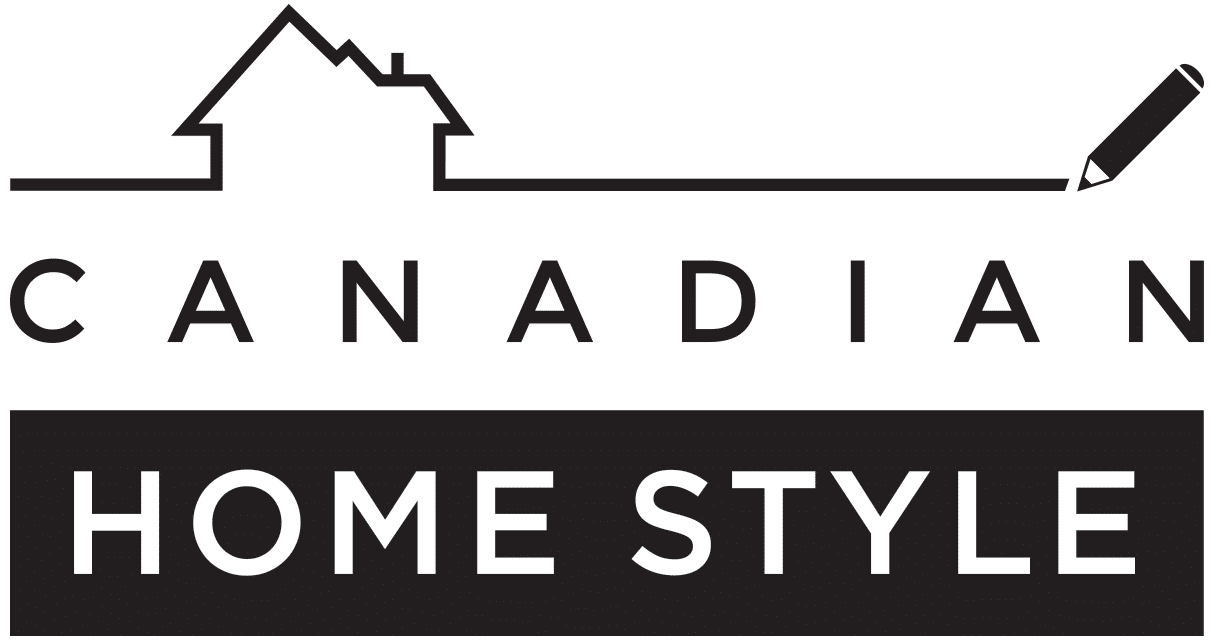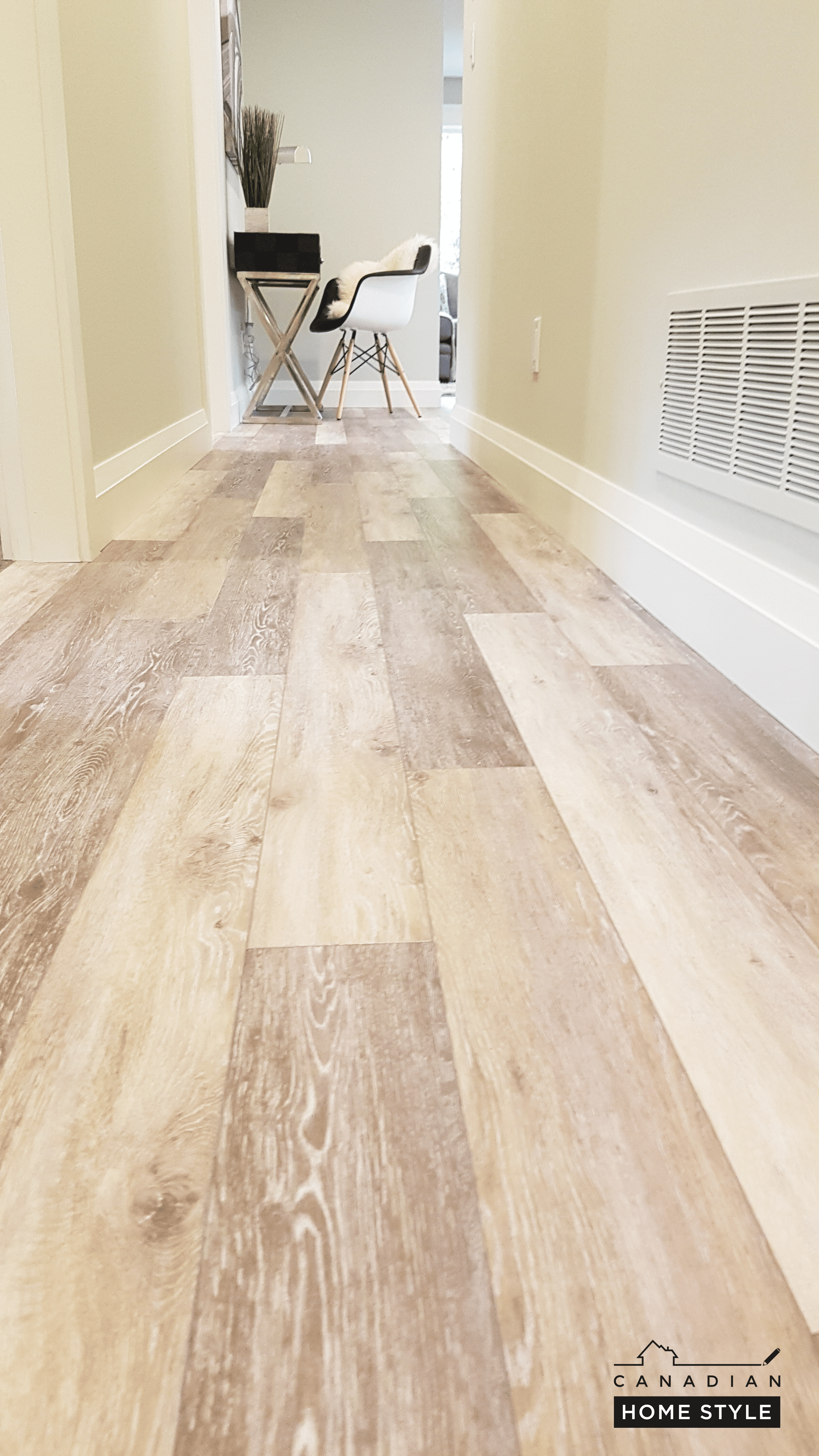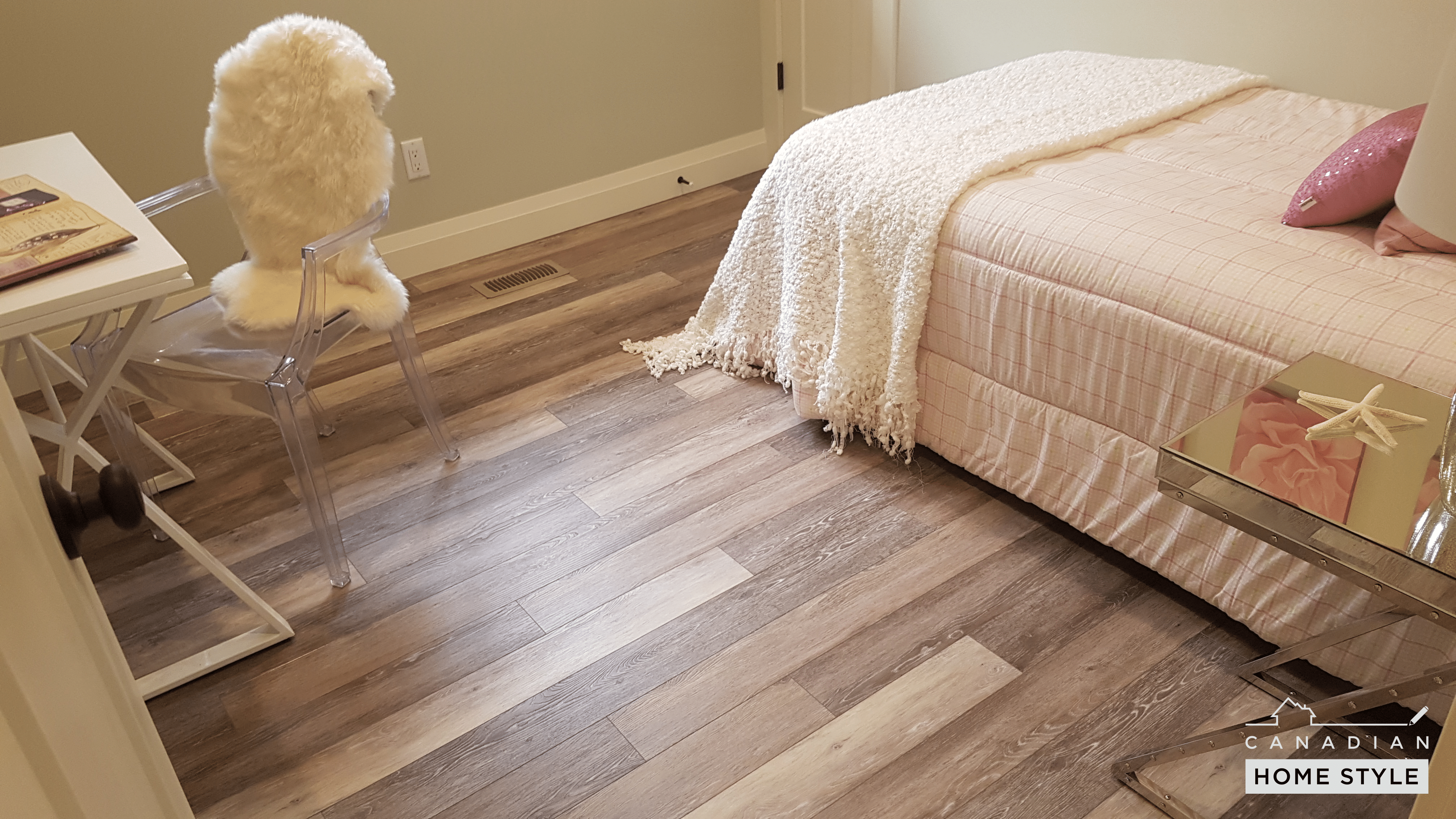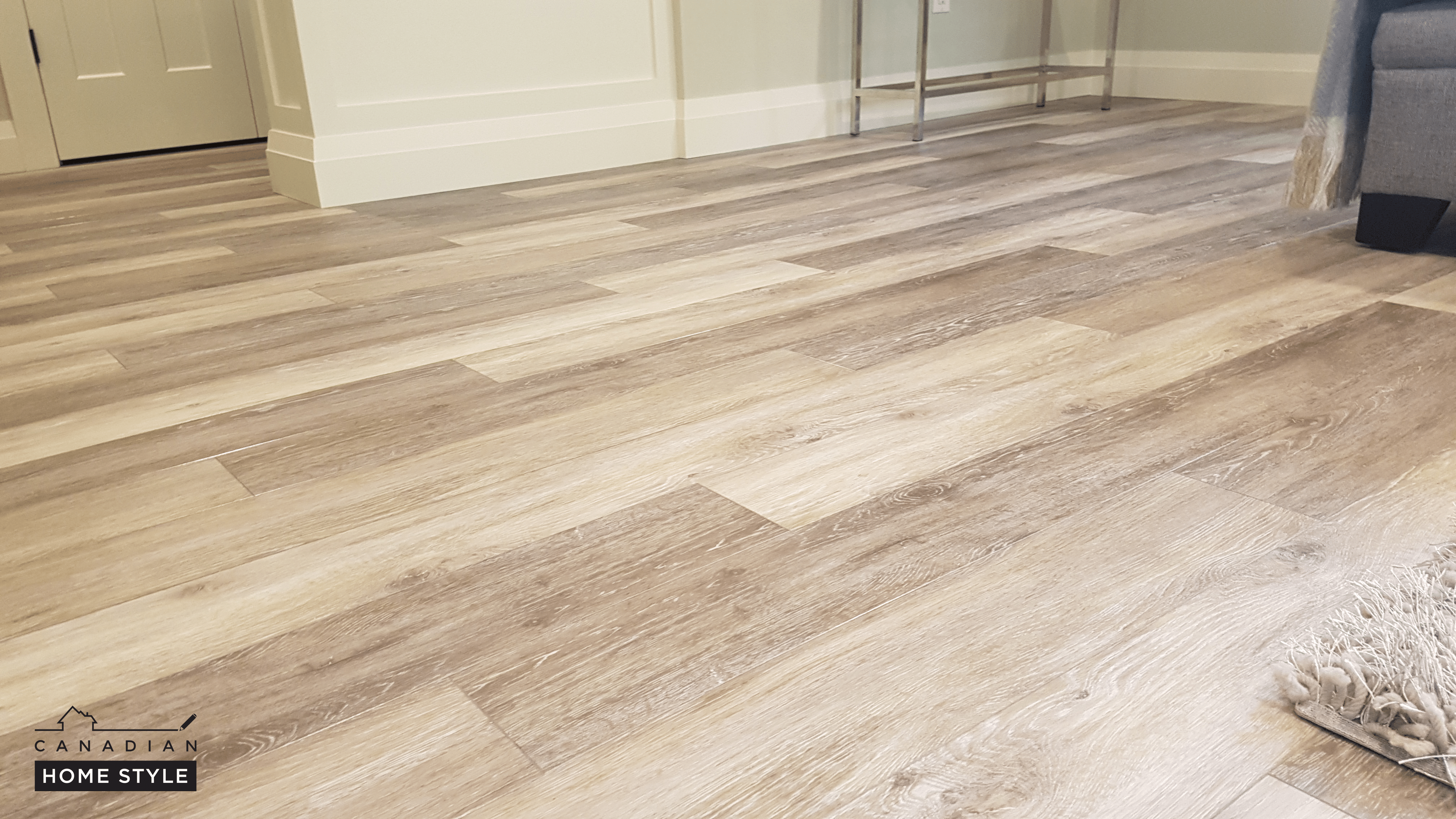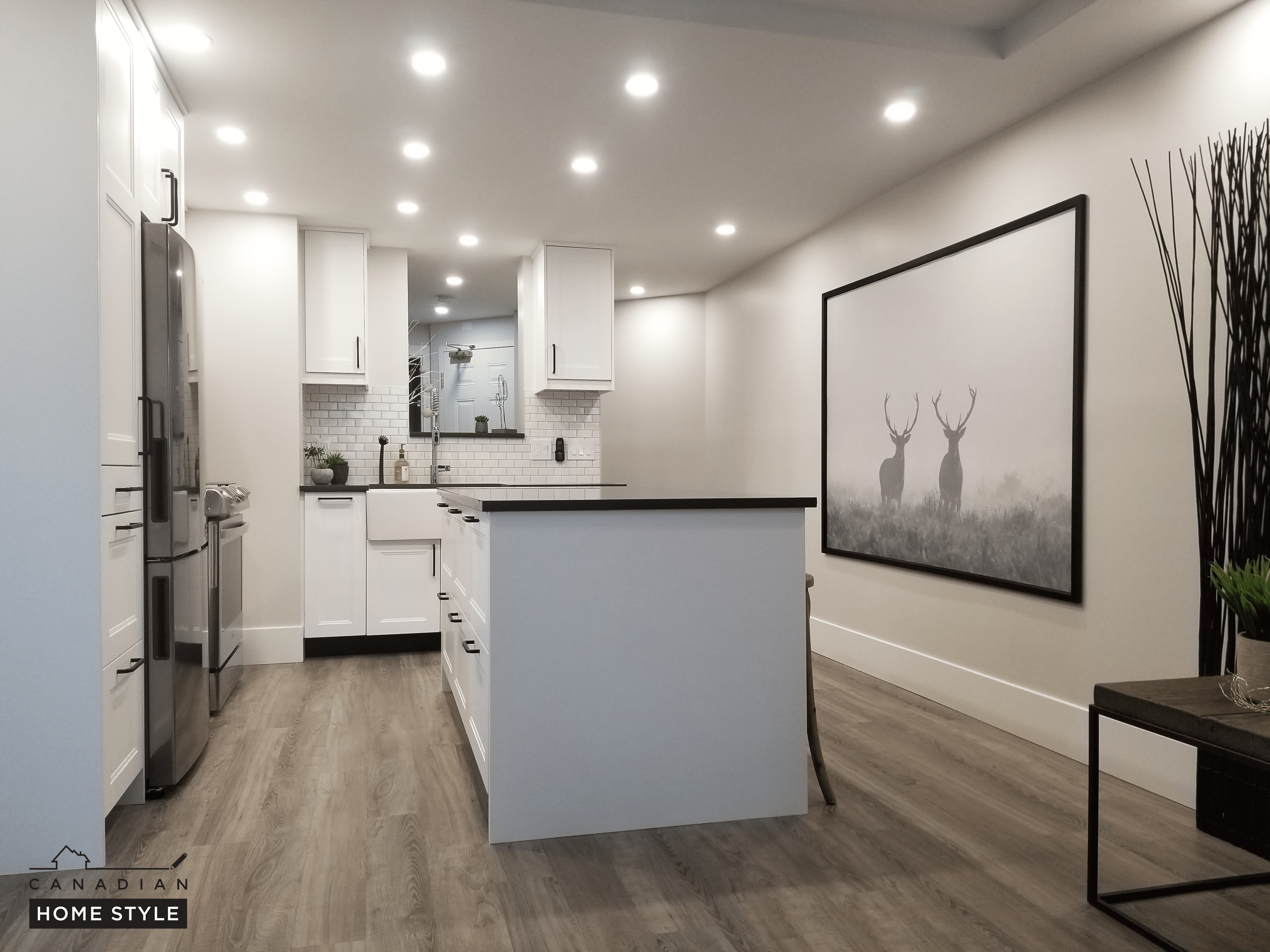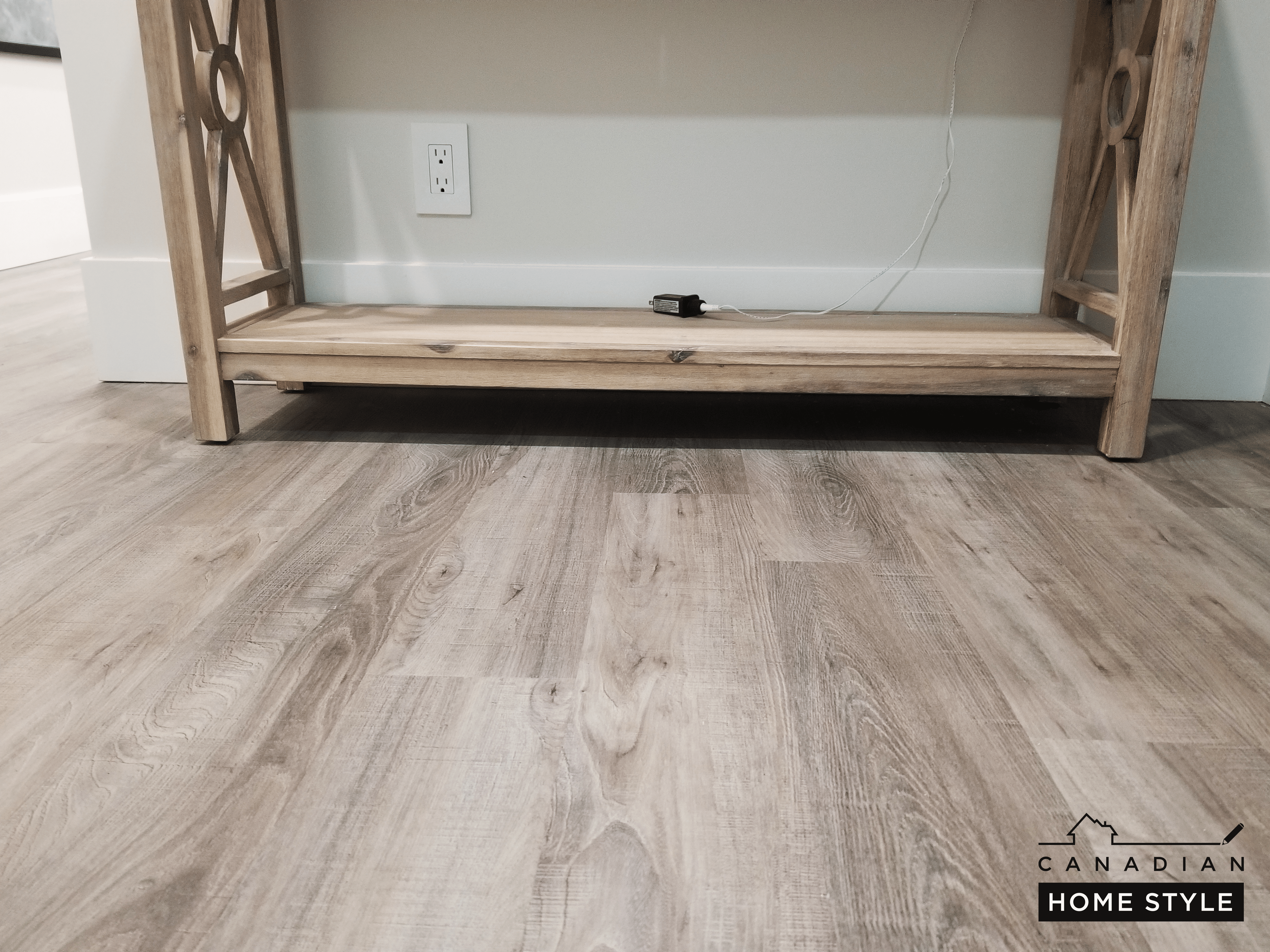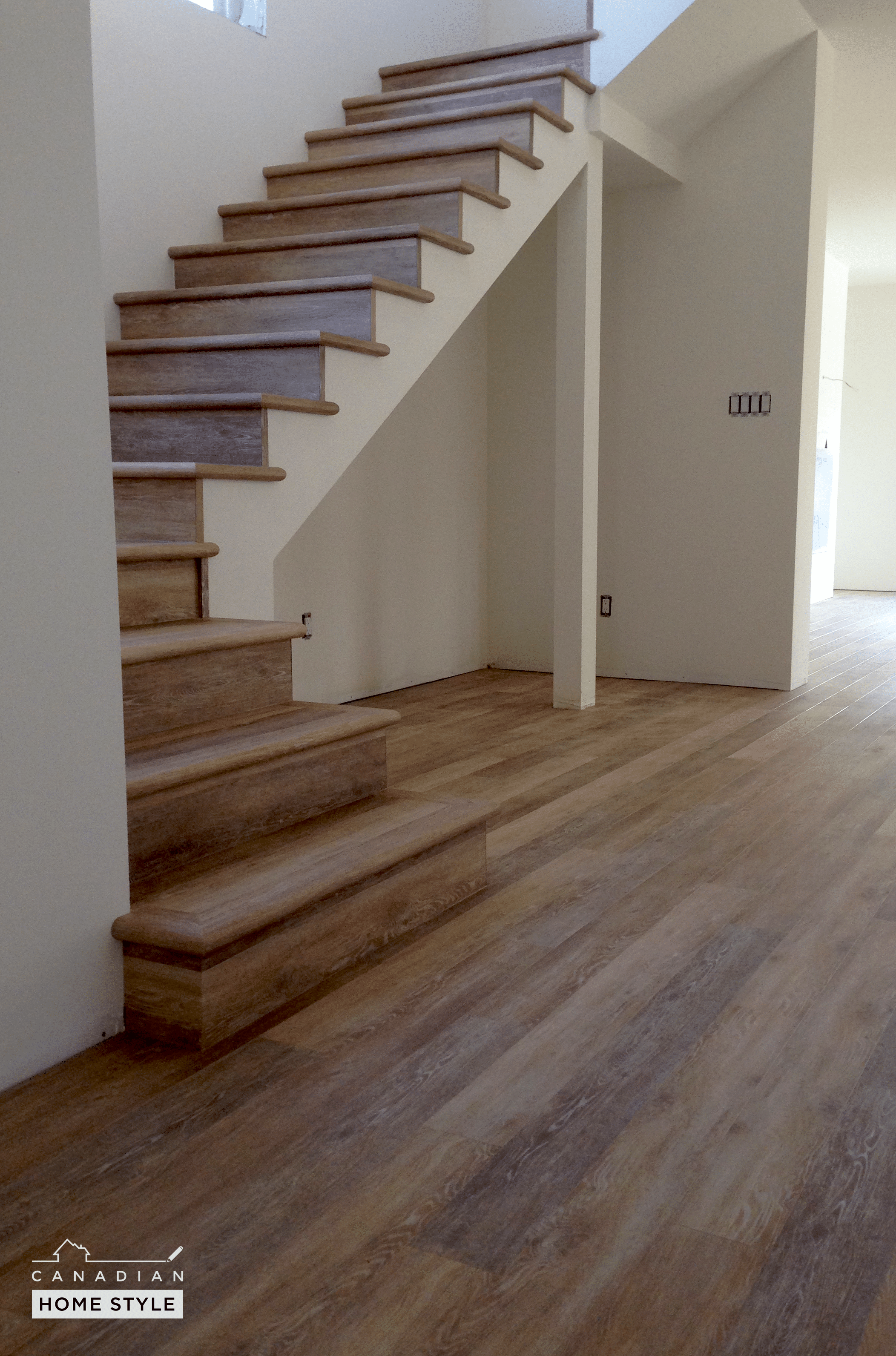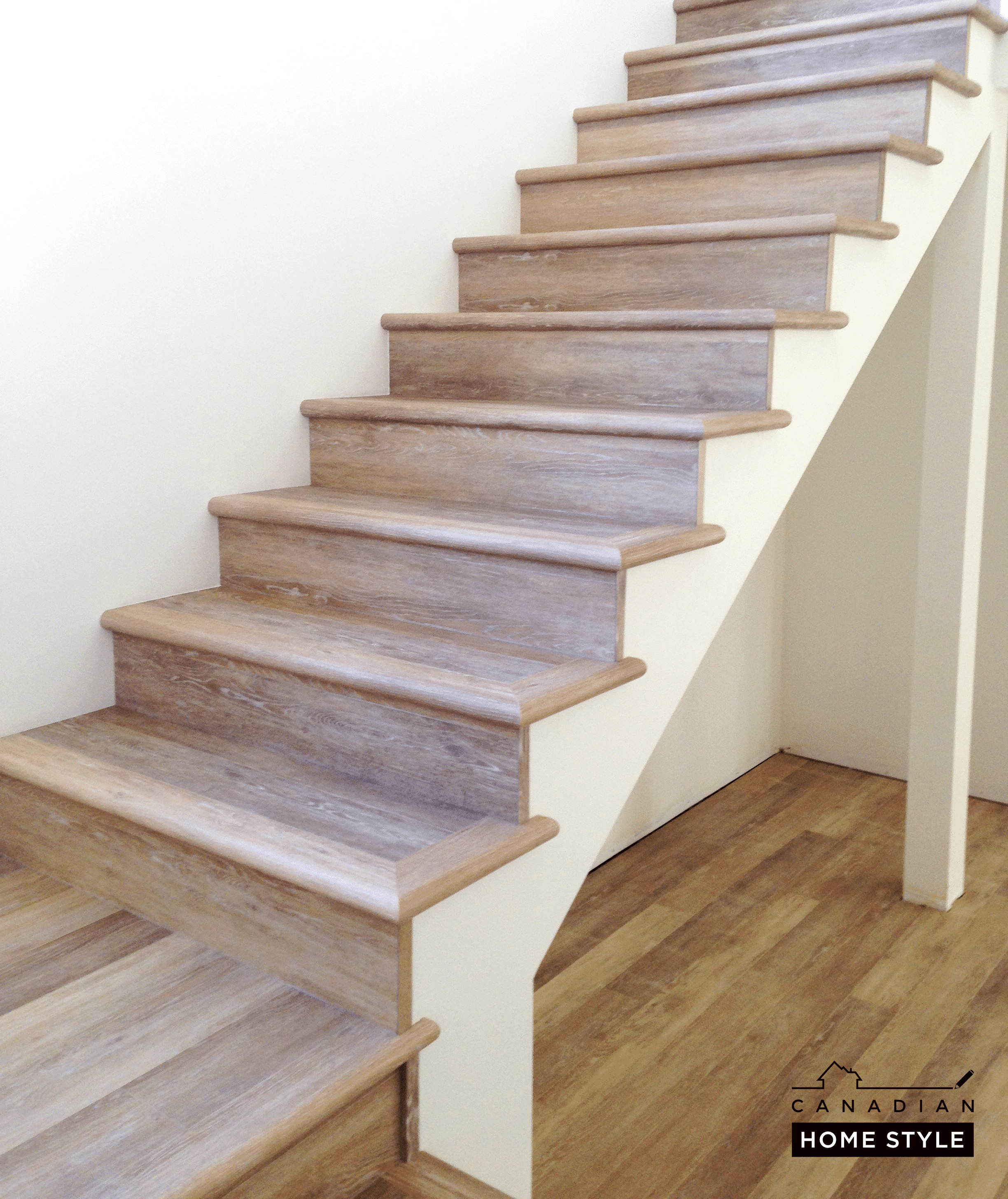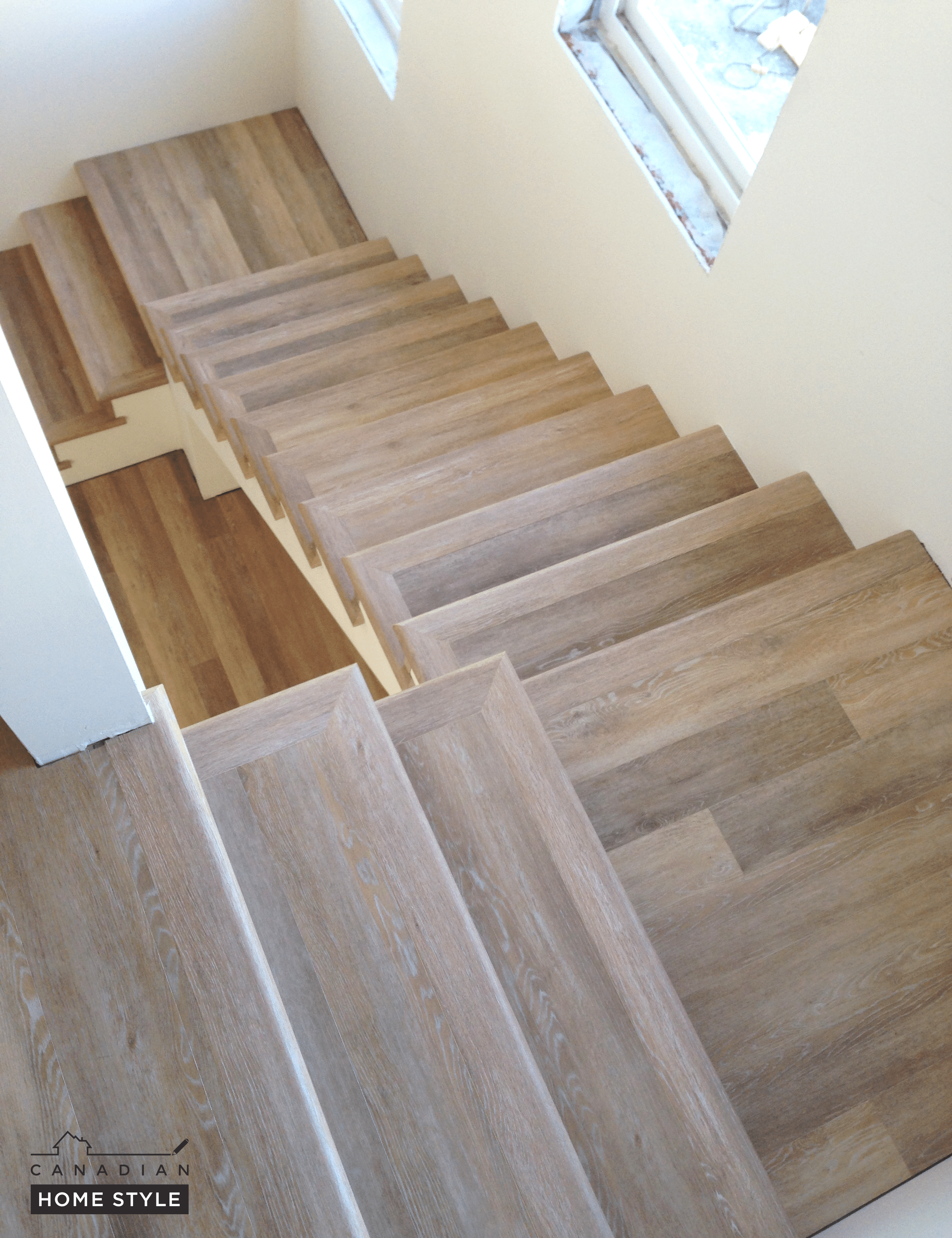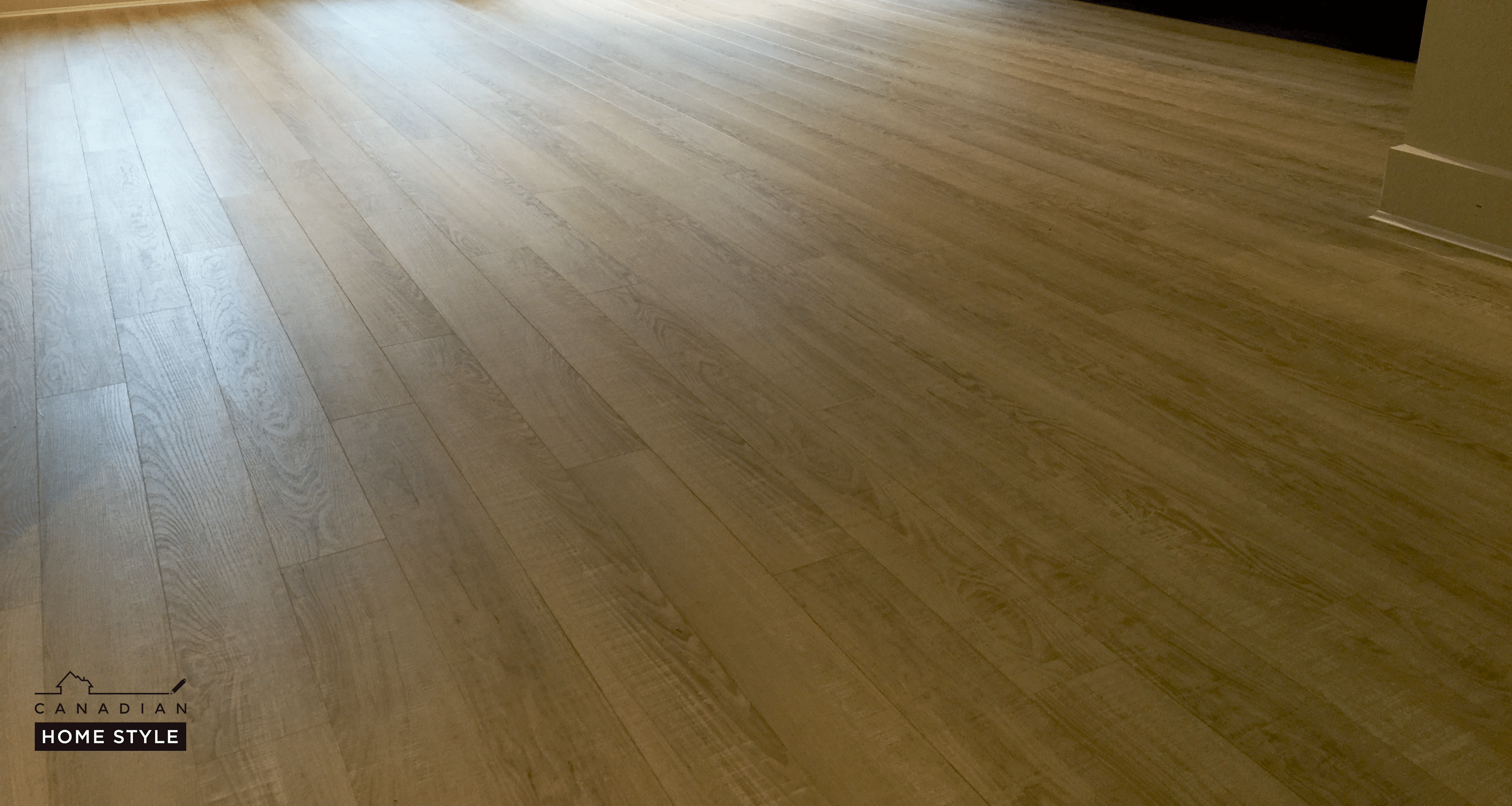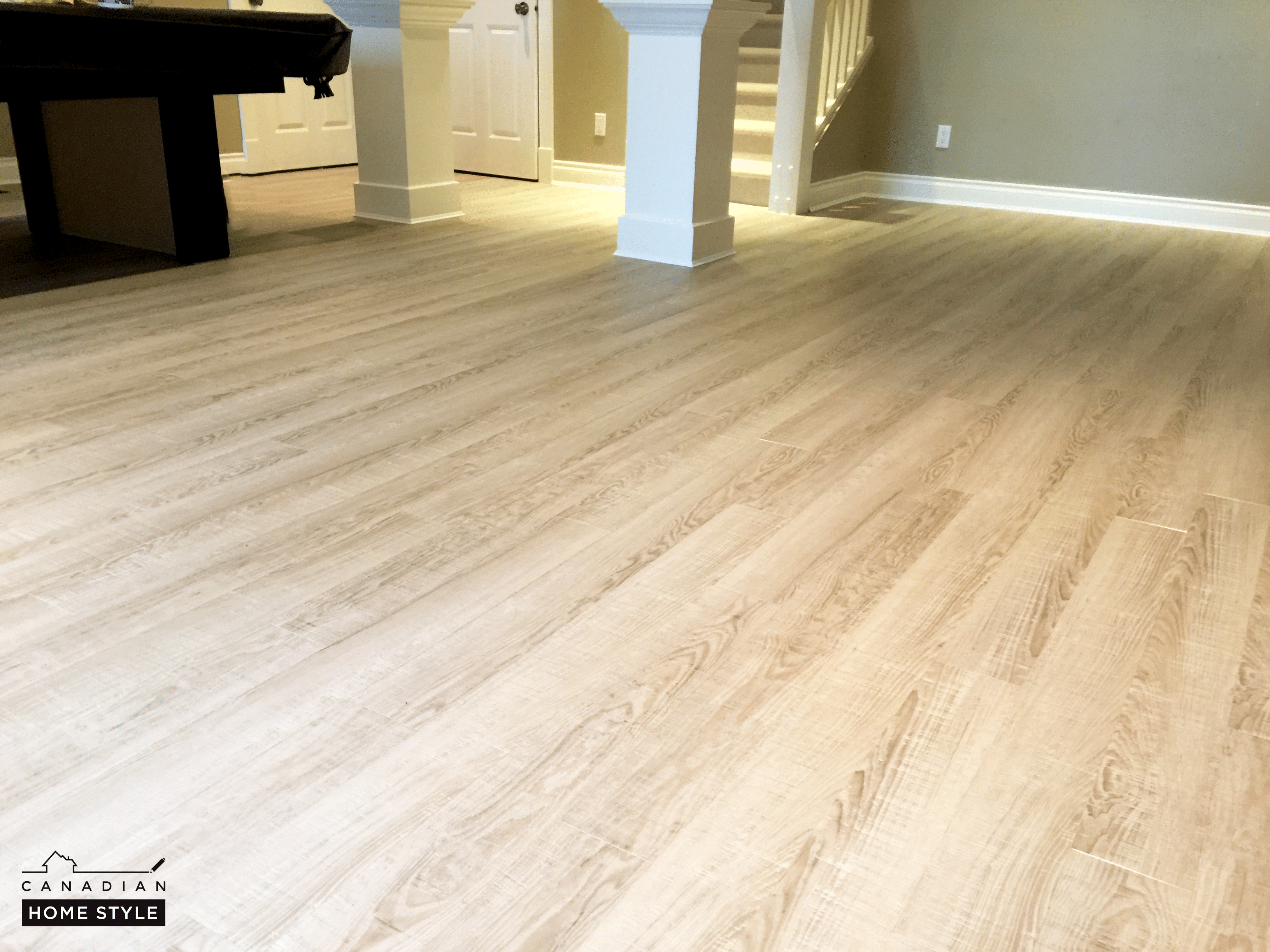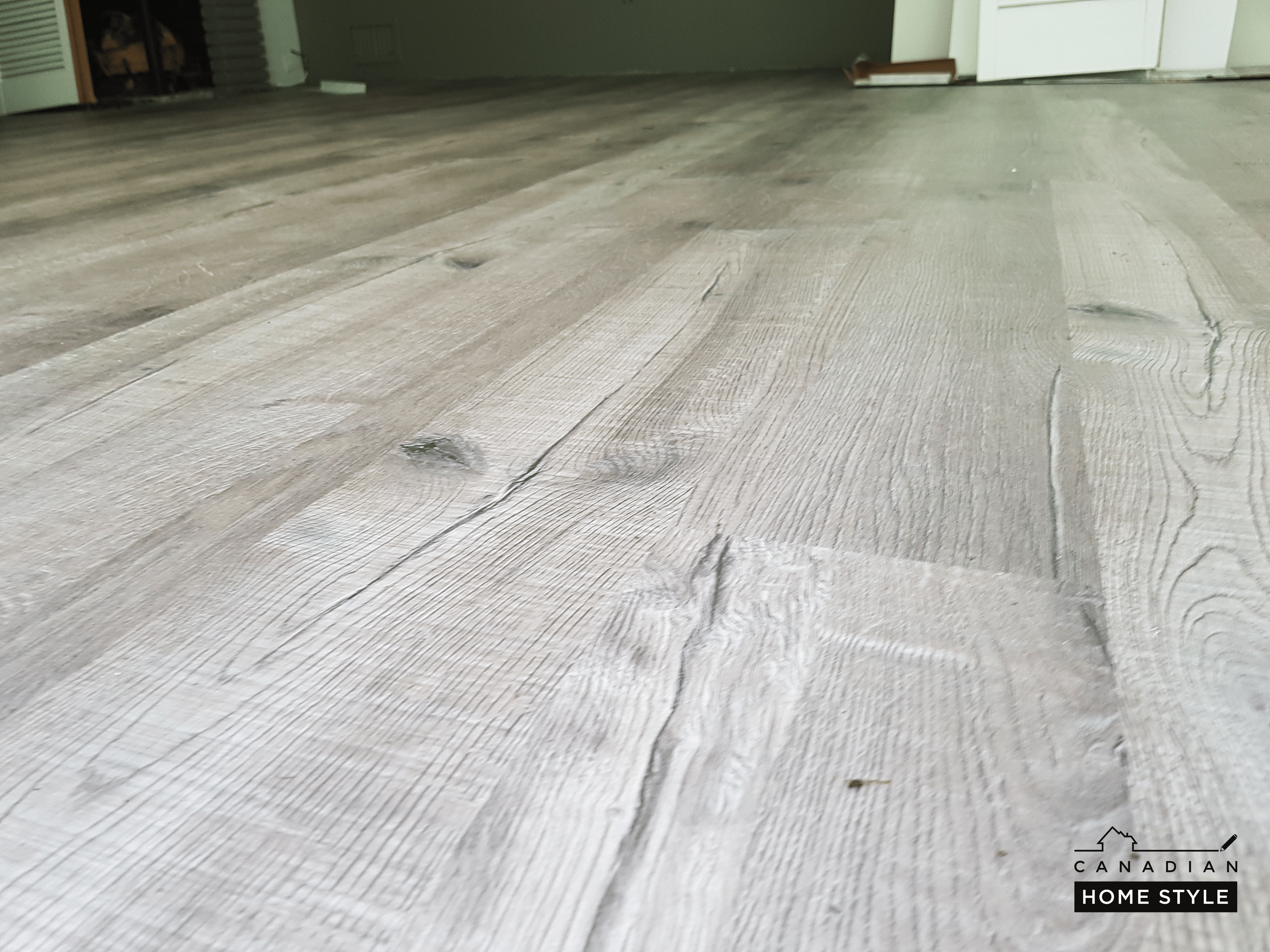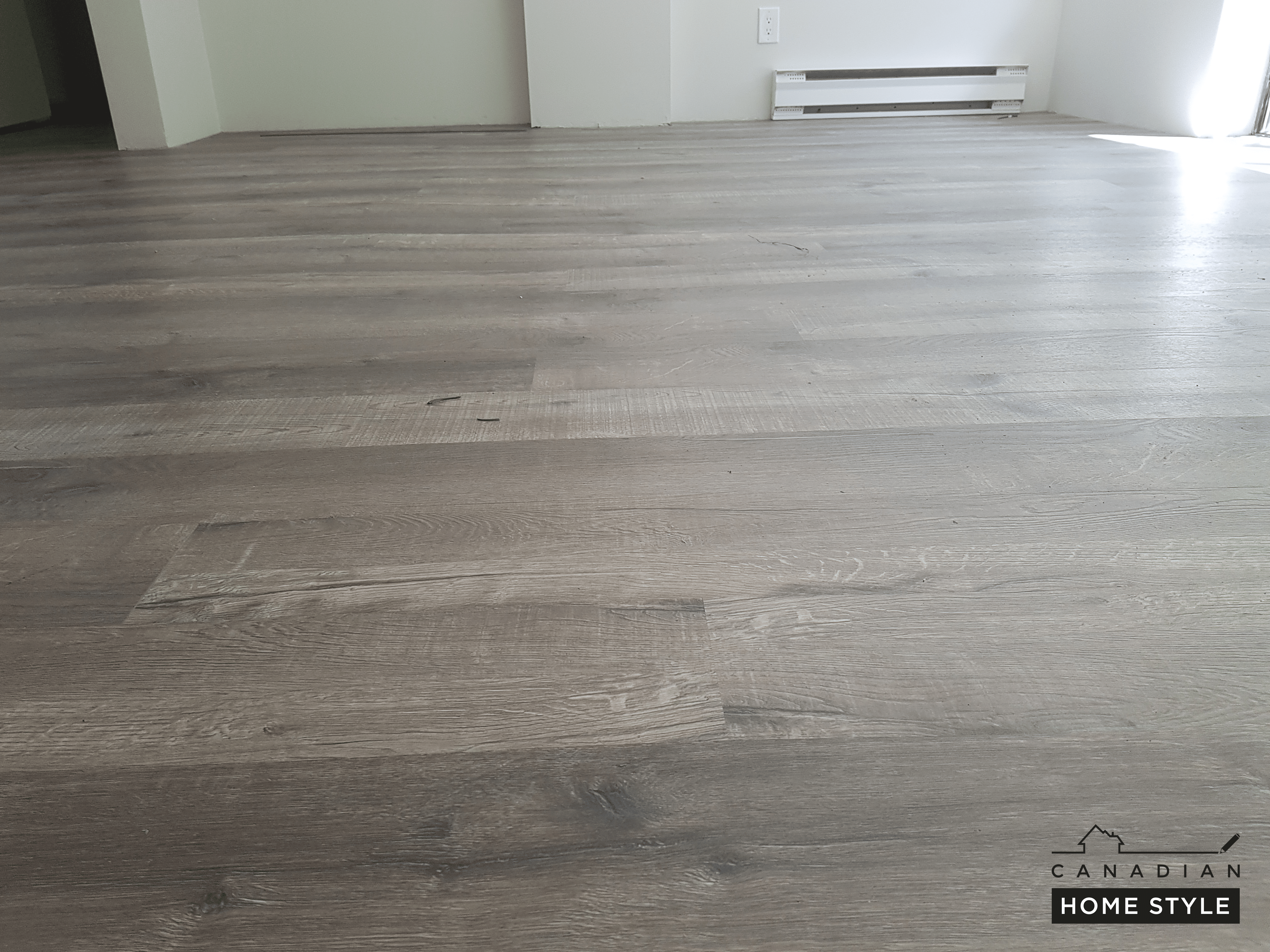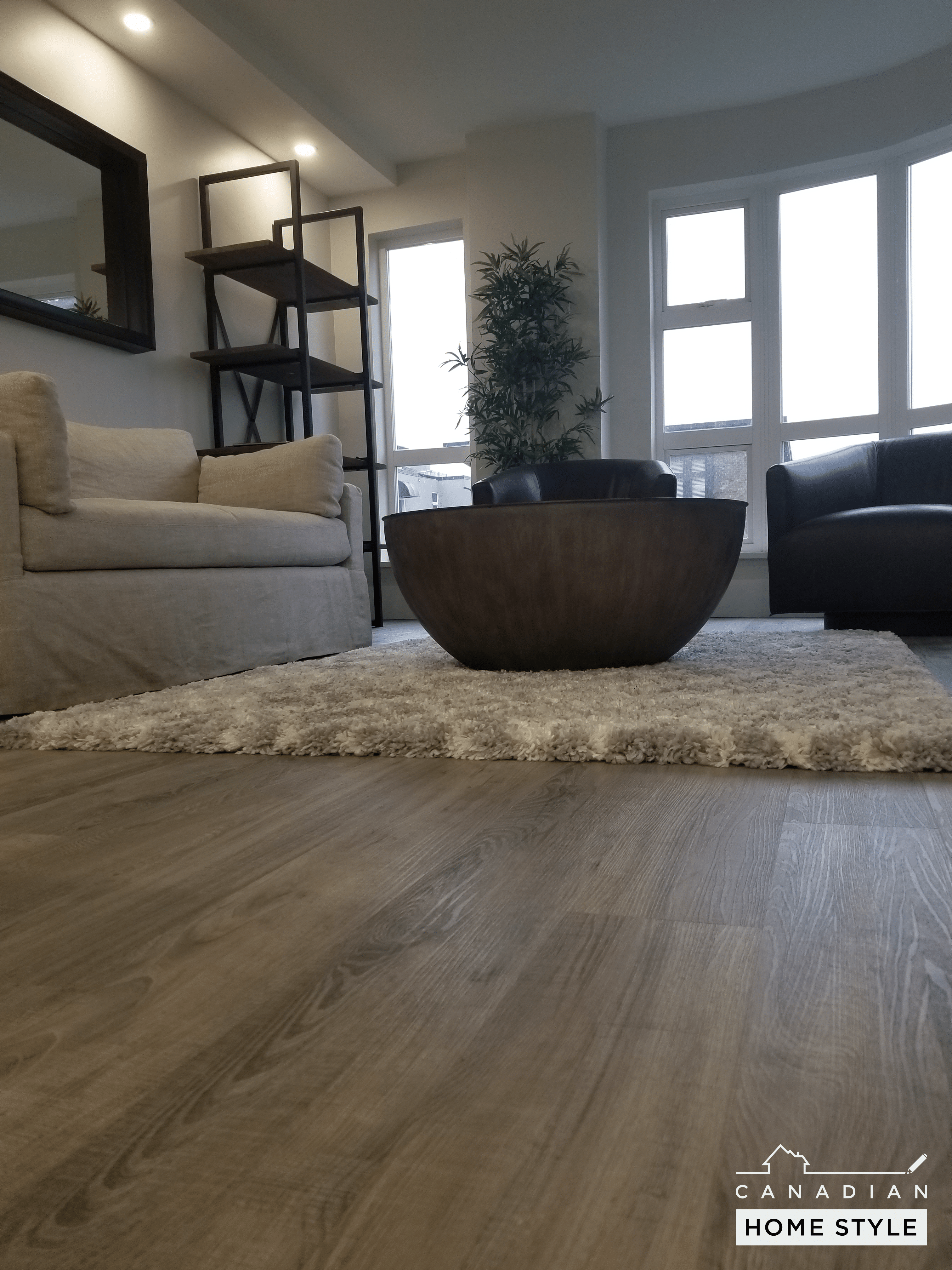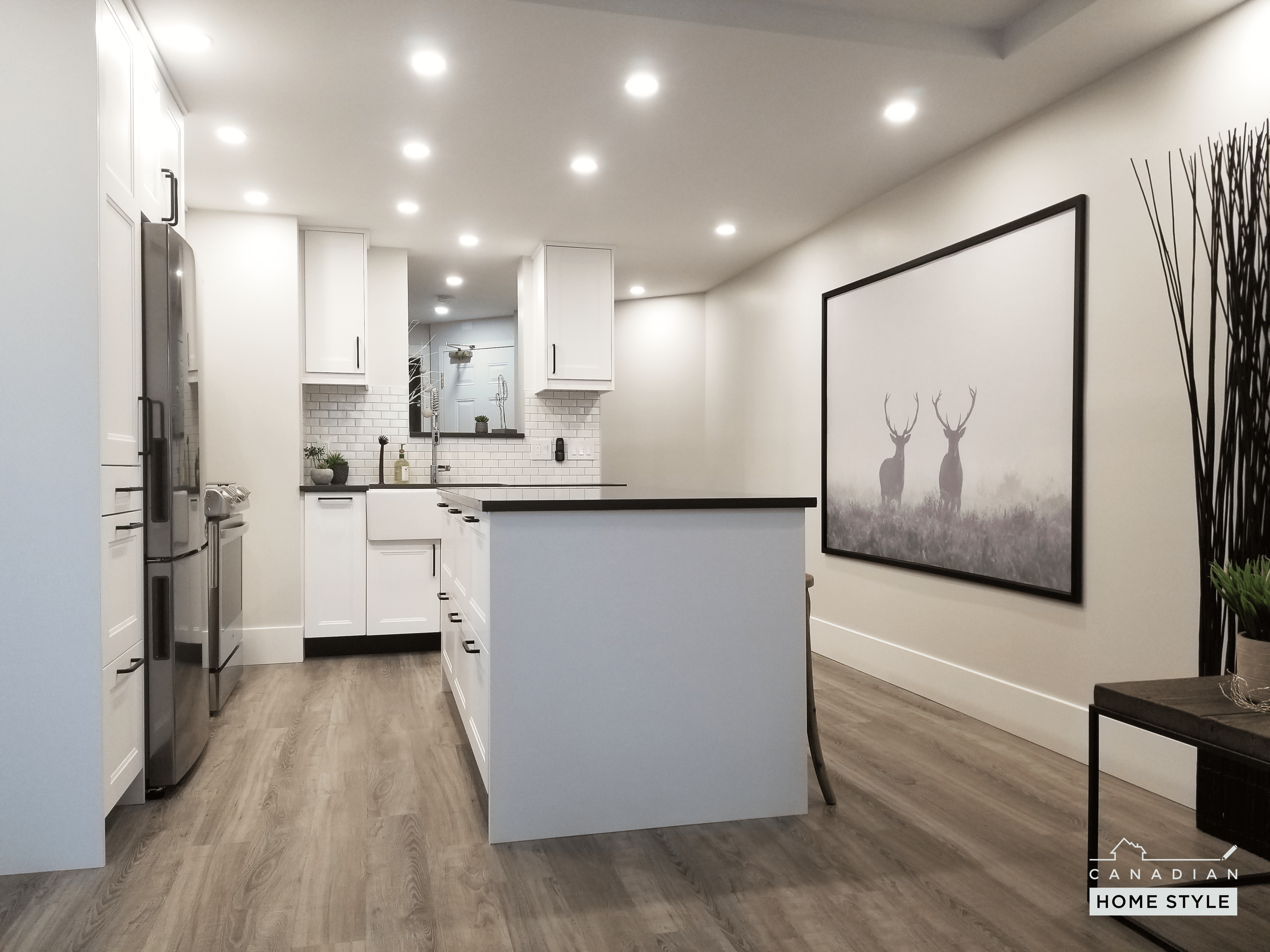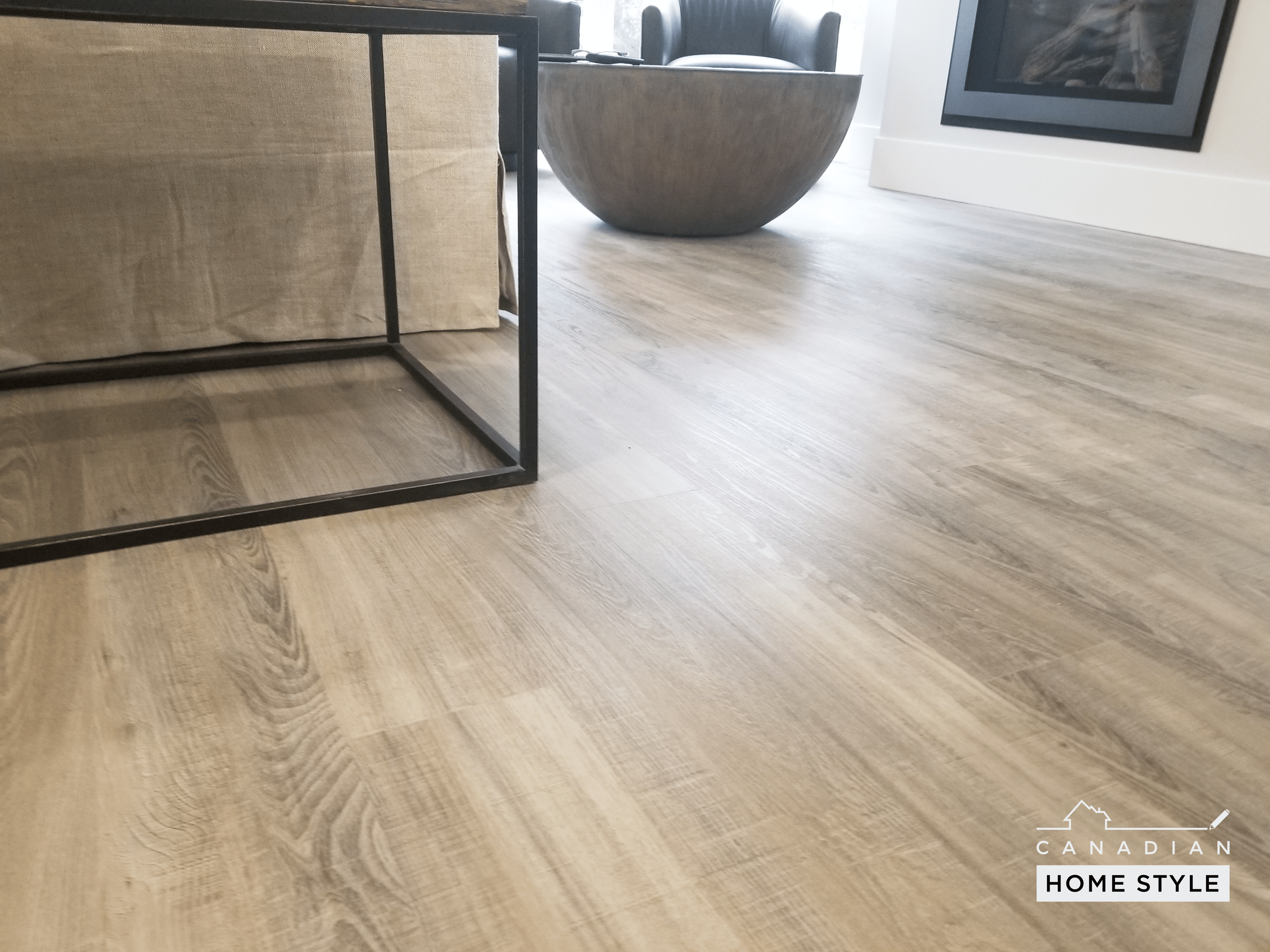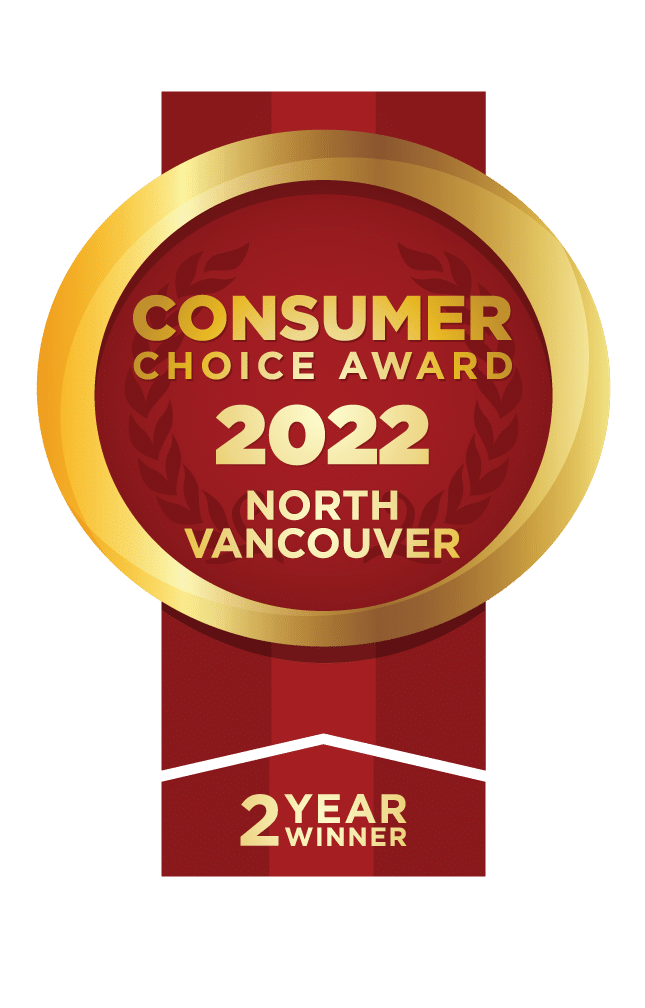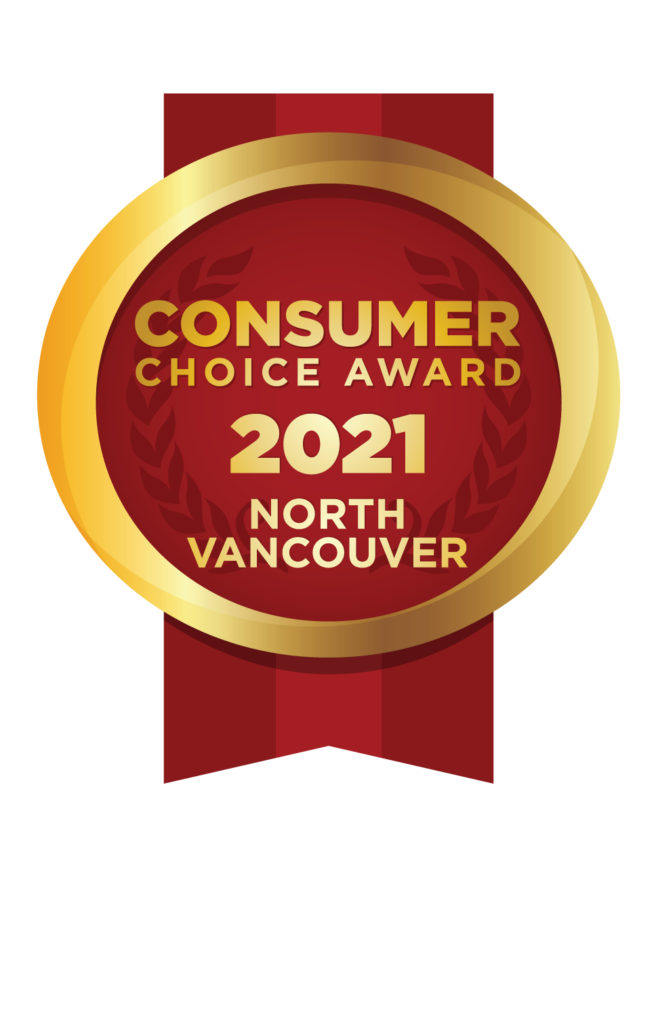Vinyl Flooring Vancouver
Find the best vinyl flooring options in Vancouver for both residential and commercial projects. Canadian Home Style offers high-quality vinyl floors, expert installation, and eco-friendly materials.
Traditional Vinyl Flooring
Vinyl flooring falls into two categories: traditional and hybrid (engineered). Traditional vinyl lacks a solid core and comes in sheets, planks, or tiles. These products are usually glued to the subfloor with pressure-sensitive vinyl adhesive. In the past decade, the industry introduced thicker vinyl options that do not need gluing, secured with double-sided tape. These have an anti-slip backing. Flooring experts still recommend gluing for most installations unless temporary. Proper sub-floor preparation is essential, involving feather patching with Ardex feather finish, especially for thinner products.
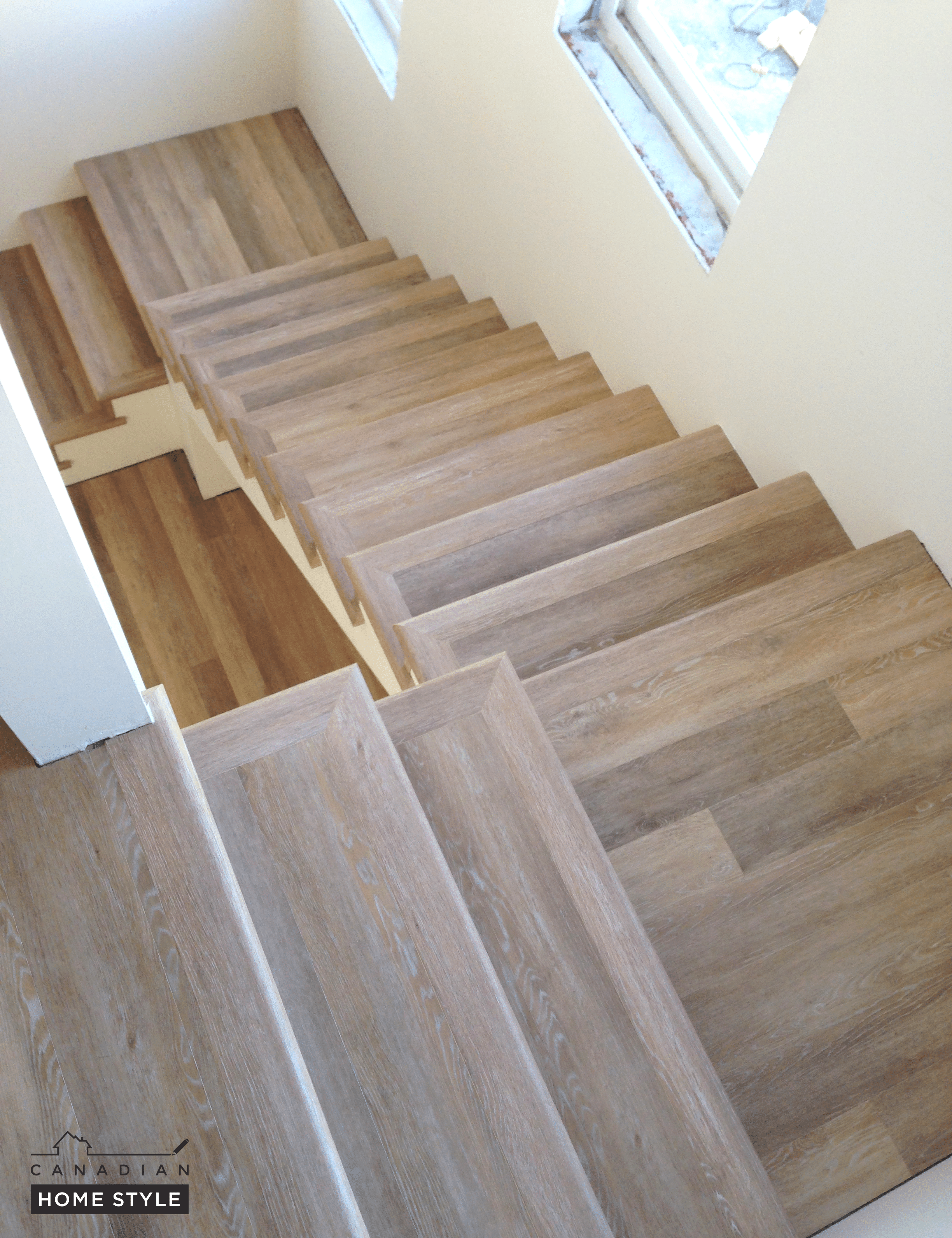
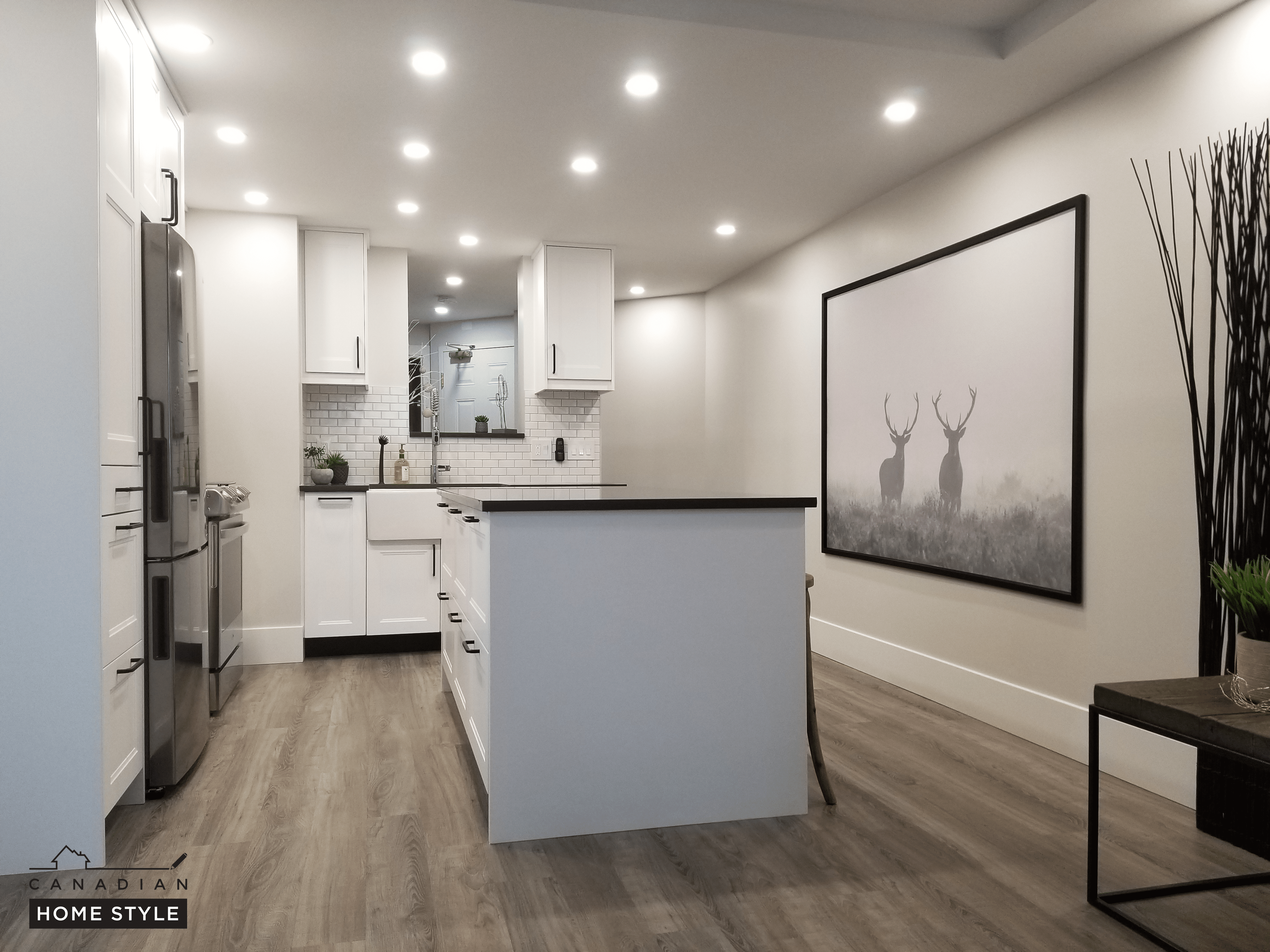
Engineered (Hybrid) Vinyl
The most popular vinyl flooring in the industry is hybrid luxury vinyl Flooring. It has a solid core and a locking mechanism. Hybrid vinyl doesn’t need pressure-sensitive glue or feather patching. However, strict floor levelling is essential to avoid long-term stress on the locking system.
The core of hybrid vinyl flooring can be WPC or SPC. WPC stands for wood plastic composite and is thicker and costlier, ideal for residential use. SPC, or stone plastic composite, is thinner but more dent and scratch-resistant, making it better for commercial applications.
Are you ready to start your journey?
Frequently Asked Questions
We offer our services in most of the Lower Mainland. Our exact areas of coverage in British Columbia is as follow:
- Vancouver
- North Vancouver
- West Vancouver
- Burnaby
- Coquitlam
- Port Coquitlam
- Richmond
- Squamish
- Whistler
- Sechelt
- Gibsons
- Delta
- Surrey
- Anmore
- Port moody
- Maple Ridge
- New Westminster
- White Rock
- Surrey
- Delta
Our list goes as follow:
- Torlys
- Mannington
- Purparket
Yes, it can be used for both commercial and residential applications. SPC vinyl is the most commonly used type of hard surface flooring in Canada due to the following reasons:
- Pet approved
- Sunlight approved
- Kid-approved
- Affordable
- Easy to install (hybrid vinyl)
Yes, all of our flooring installers are in-house and they are absolutely fabulous. We are famous for our team of pro installers as we would be lost without them. We appreciate every single one of them for their hard work and attention to detail. They take pride in following our philosophy of treating your home as if it were their own.
The price of installation for luxury vinyl planks or tiles is \$2.00-2.50 SF for most flooring stores in Metro Vancouver. It really depends on the company and the installer’s experience level.
However, you must consider the following factors as well for the total cost:
- Existing floor removal and disposal
- Baseboards
- Transitions and trims
- Subfloor preparation and leveling
Absolutely! Sheet vinyl is the hardest vinyl to install. This is because sheet vinyl needs to be seamed similar to broadloom carpet.
LVT stands for luxury vinyl tile and LVP stands for luxury vinyl plank. LVT mimics the look of porcelain tiles or stone. LVP mimics the look of natural hardwood.
Yes, that’s actually a common problem when it comes to vinyl floors. Unlike other hard surface flooring options, vinyl doesn’t show signs of damage when introduced to moisture. Therefore, you can have mold or mildew under your floors without ever noticing that. This is why, for healthy home living, we always recommend products that offer anti-fungal underlays attached.
Yes, it’s much harder since you need to properly prepare the subfloor by feather patching it prior to installation. A process that is not needed for hybrid vinyl installation.
What types of vinyl flooring are available in Vancouver?
We offer a variety of vinyl flooring options including luxury vinyl planks, waterproof vinyl tiles, and sheet vinyl suitable for diverse applications.
How durable is vinyl flooring against daily wear and tear?
Vinyl flooring is known for its resilience and durability, making it an ideal choice for high-traffic areas in both residential and commercial spaces.
Is vinyl flooring a good choice for pet owners in Vancouver?
Absolutely! Vinyl flooring is resistant to scratches and stains, making it a pet-friendly flooring option.
Can vinyl flooring be installed over existing flooring?
Yes, in many cases, vinyl flooring can be installed over existing floors, but it depends on the condition and type of the existing floor.
How long does vinyl flooring installation take?
The installation time varies based on the project size, but we strive to complete most residential projects efficiently and with minimal disruption.
Is vinyl flooring suitable for kitchens and bathrooms in Vancouver?
Yes, vinyl flooring is an excellent choice for kitchens and bathrooms due to its water-resistant properties and ease of cleaning.
How easy is it to maintain vinyl flooring?
Vinyl flooring is low maintenance; regular sweeping and occasional mopping are all that’s needed to keep it looking new.
Are there eco-friendly vinyl flooring options available?
We offer a range of eco-friendly vinyl flooring options that are both sustainable and safe for indoor environments.
What is the cost of vinyl flooring in Vancouver?
The cost varies depending on the type and quality of vinyl flooring. We provide competitive pricing and detailed quotes for each project.
Do you offer warranties on vinyl flooring installations?
Yes, we offer comprehensive warranties on both the flooring products and the installation workmanship.
For more information on vinyl flooring, visit these informative resources:
- Flooring Canada’s Vinyl Flooring Guide
- HGTV’s Guide to Vinyl Flooring
- This Old House Vinyl Flooring Guide
- Architectural Digest: Everything You Need to Know About Vinyl Flooring
- Consumer Reports Flooring Buying Guide
- Bob Vila’s Comparison: Vinyl vs. Laminate Flooring
- The Spruce’s Guide on Vinyl Flooring Materials
- Good Housekeeping’s Vinyl Flooring Guide
- HowStuffWorks’ Guide to Vinyl Flooring
- Flooring Inc’s Vinyl Flooring FAQs
Industry Associations:
BC Floor Covering Association
National Wood Flooring Association
Check out these informative videos:
Vinyl Flooring Installation Services in Vancouver
What to Expect During Installation
When you opt for vinyl flooring installation in Vancouver, expect a smooth and efficient process. Our expert installation services ensure that every step, from surface preparation to the final touches, is handled with care. The installation process starts with assessing your existing floors, followed by necessary adjustments like leveling and cleaning. Our professionals will then install your new vinyl floors, ensuring minimal disruption to your routine.
How to Prepare Your Home for Installation
Proper preparation can make the vinyl flooring installation process seamless. Here are some home preparation tips:
- Clear the Area: Remove furniture, decor, and any obstructions from the rooms where vinyl flooring will be installed.
- Ensure Cleanliness: Sweep or vacuum the floors to remove dust and debris.
- Remove Old Flooring: If needed, we can provide services to remove existing flooring materials.
- Verify Power Supply: Make sure there is access to electricity for our tools and equipment.
Following these steps helps our Vancouver vinyl flooring experts complete the installation efficiently.
Post-Installation Care and Tips
After your new vinyl floor installation, proper maintenance is essential for preserving its appearance and longevity. Here are some key post-installation care tips:
- Routine Cleaning: Regularly sweep or vacuum to remove dirt and grit that can scratch the surface.
- Mop Safely: Use a damp mop with a mild cleaner designed for vinyl flooring.
- Protect from Heavy Furniture: Place protective pads under furniture legs to prevent dents and scratches.
- Seasonal Maintenance: Be mindful of seasonal changes in humidity and temperature, which can affect vinyl flooring.
These simple care tips will keep your new flooring in excellent condition for years.
Eco-Friendly Vinyl Flooring Options
Why Choose Eco-Friendly Vinyl Flooring?
Choosing eco-friendly vinyl flooring benefits both the environment and your home’s health and safety. Environmentally friendly flooring options are made from sustainable materials and produced using processes that reduce waste and emissions. Benefits of green flooring options include improved indoor air quality, fewer chemicals, and a smaller carbon footprint.
Sustainable Brands and Collections
Canadian Home Style offers various sustainable brands and collections of eco-friendly vinyl flooring. These suppliers focus on sustainability without compromising style or durability. Some top green flooring brands include:
- EcoVinyl Collection: Known for reducing environmental impact.
- GreenWay Flooring: Uses recycled materials.
- Sustainable Designs: Offers stylish and sustainable vinyl flooring options.
By choosing from these collections, you support eco-friendly practices while enhancing your home with durable flooring.
Maintenance Tips for Eco-Friendly Flooring
Maintaining eco-friendly vinyl flooring is straightforward. Here are some green flooring maintenance tips:
- Use Non-Toxic Cleaners: Opt for environmentally friendly cleaning products.
- Regular Cleaning: Keep your floors clean with regular sweeping or vacuuming.
- Avoid Harsh Chemicals: Do not use bleach or abrasive cleaners that can damage eco-friendly flooring.
- Preventive Measures: Use doormats to trap dirt and place felt pads under furniture.
These care tips will maintain your vinyl floor’s beauty and longevity while adhering to eco-friendly standards.
Comparing Vinyl Flooring Types in Vancouver
Vinyl Plank vs. Vinyl Tile: Which is Better?
Understanding the differences between vinyl plank and vinyl tile helps you select the best flooring option. Here’s a comparison:
- Vinyl Plank: Mimics hardwood, ideal for living areas and bedrooms. It’s easy to install and offers a comfortable, cushioned feel.
- Vinyl Tile: Resembles ceramic or stone tiles, perfect for kitchens and bathrooms. It’s very durable and water-resistant.
Each type has pros and cons, so consider your specific needs and preferences when making a choice.
Pros and Cons of Traditional Vinyl Flooring
Traditional vinyl flooring is popular due to its affordability and versatility. Here are some pros and cons:
Pros:
- Cost-Effective: Generally more affordable than other flooring types.
- Easy to Install: Often comes in sheets or tiles that are simple to lay down.
- Versatile Designs: Available in a wide range of patterns and colours.
Cons:
- Durability: May not be as durable as luxury vinyl options.
- Susceptible to Damage: Can be prone to tears and scratches over time.
Considering these factors can help you decide if traditional vinyl flooring is right for your home.
Advantages of Luxury Vinyl Plank Flooring
Luxury vinyl plank (LVP) flooring is a premium option known for its high quality and visual appeal. Here are some advantages of LVP flooring:
- Authentic Look: Closely resembles natural wood, offering a sophisticated look.
- Durability: Resistant to water, stains, and wear, ideal for high-traffic areas.
- Comfort: Provides a softer feel underfoot compared to traditional vinyl.
- Easy Maintenance: Simple to clean and maintain, requiring minimal effort.
Luxury vinyl plank flooring offers a high-end, durable solution for those seeking a blend of style and practicality.
Visit our Canadian Home Style showroom today to explore these vinyl flooring options and more. Our expert team is ready to help you find the perfect flooring solution for your Vancouver home. Call for details about our current promotions and discover why it’s worth the trip!
Custom Vinyl Flooring Solutions
Tailoring Vinyl Flooring to Your Home’s Style
Transform your Vancouver home with our premium vinyl flooring options. Custom vinyl projects allow you to match your flooring perfectly with your home renovation style. Choose from a wide range of floor coverings designed to fit your unique ideas. Whether you aim for a modern, rustic, or classic look, we offer bespoke solutions to meet your needs.
Benefits of Custom Vinyl Designs
Opting for custom vinyl designs offers numerous advantages. Our high-quality vinyl ensures durability and long-lasting performance. Personalized styles let you reflect your unique taste in any room. Custom vinyl projects provide quality assurance and unique designs that standard options can’t match. Style your space exactly as you envision with our customization options.
Case Studies of Custom Vinyl Projects
Explore the success of past custom vinyl projects in Vancouver through detailed case studies. Customer testimonials highlight real-life applications and the journey to perfect flooring solutions. Client feedback shows how tailored vinyl flooring enhances aesthetic appeal and functionality, showcasing project success and satisfaction.
Affordable Vinyl Flooring Options
Budget-Friendly Vinyl Flooring Brands
Explore our selection of budget-friendly vinyl flooring brands that combine quality with affordability. We offer cost-effective solutions in Vancouver, ensuring you don’t have to compromise on style for price. These economical options are ideal for those renovating on a budget while achieving high-end looks.
How to Get the Best Deals on Vinyl Flooring
Maximize savings with our tips on getting the best deals on vinyl flooring in Vancouver. Take advantage of sales and discounts for cost-effective flooring solutions. Learn pricing strategies and negotiation techniques to get the best value for your money.
Cost Comparison: Vinyl vs Other Flooring Types
Compare the costs between vinyl flooring and other types. Our financial analysis highlights the value and affordability of vinyl flooring in Vancouver. Understand the pros and cons of each option, allowing you to make an informed decision that fits your budget while delivering high-quality results.
Vinyl Flooring for Different Rooms
Choosing Vinyl Flooring for Kitchens
Selecting the right kitchen flooring is essential due to intense usage and exposure to spills. Our water-resistant vinyl options in Vancouver guarantee durability and practicality. Easy to clean and maintain, these vinyl floors are perfect for busy kitchens.
Best Vinyl Flooring Options for Bathrooms
Our bathroom vinyl flooring selections in Vancouver focus on waterproof and anti-slip properties. With moisture-proof options, ensure safety and protection in wet areas. These choices not only offer functionality but also add aesthetic value to your bathroom interiors.
Living Room Vinyl Flooring Ideas
Furnish your living room with stylish vinyl flooring that enhances interior decor and provides comfortable living spaces. Discover trendy design ideas in Vancouver, tailored to create a cozy yet elegant atmosphere. Our range includes options that cater to various tastes, making it easy to find the perfect vinyl flooring solution for your living room.
Vinyl Flooring Trends in Vancouver
Current Design Trends in Vinyl Flooring
When exploring vinyl flooring in Vancouver, current design trends reflect a keen interest in sophistication and practicality. Vinyl plank flooring is highly popular due to its realistic wood-like appearance and texture. Homeowners increasingly prefer luxury vinyl flooring, which offers an elevated look with the durability of traditional vinyl. Waterproof vinyl flooring is rising in popularity, particularly suitable for Vancouver’s damp climate. Modern design trends also include varied vinyl patterns like herringbone and geometric shapes, showcasing the versatility of high-quality vinyl flooring in Vancouver.
Popular Colour Choices for Vinyl Floors
Colour choices for vinyl flooring in Vancouver are diverse, matching various interior styles. Neutral tones such as greys and beiges dominate, offering a versatile base that suits many decor styles. However, bold hues and dark wood finishes are gaining traction for more dramatic floors. Eco-friendly vinyl flooring options are available, providing sustainable choices without sacrificing style. For those seeking durability, scratch-resistant vinyl flooring combines aesthetics with longevity.
Innovative Patterns and Textures
Textured vinyl flooring has changed perceptions of vinyl floors, adding depth and character to any space. From realistic wood grains to stone effects, modern vinyl flooring now boasts numerous innovative patterns and textures. Advanced manufacturing techniques allow homeowners to choose from vinyl tile with intricate designs and luxurious finishes, ensuring their floors stand out. These innovations ensure that high-quality vinyl flooring in Vancouver fits perfectly into contemporary homes, offering both visual and tactile appeal.
The Benefits of Waterproof Vinyl Flooring
Why Waterproof Vinyl is Ideal for Vancouver Homes
Waterproof vinyl flooring is ideal for Vancouver homes given the region’s moisture levels. Its water resistance makes it perfect for kitchens, bathrooms, and basements, where spills and humidity are common. Durable vinyl flooring withstands water, stains, and scuffs, making it suitable for high-traffic areas. Additionally, eco-friendly vinyl flooring provides a green option for environmentally-conscious homeowners. Choosing residential vinyl flooring ensures long-lasting performance while maintaining a stylish look.
Top Waterproof Vinyl Flooring Brands
Several brands lead in waterproof vinyl flooring. Luxury vinyl flooring from top suppliers guarantees superior quality and advanced features. Renowned brands available through vinyl flooring suppliers in Vancouver offer products known for exceptional durability and stylish design. High-quality vinyl flooring includes options from premium manufacturers, combining functionality with aesthetic appeal.
Installation Tips for Waterproof Vinyl
Efficient vinyl flooring installation requires proper planning and technique. Here are some tips for a smooth installation:
- Prepare the Subfloor: Ensure it is clean, dry, and level.
- Acclimatize the Flooring: Let the vinyl adjust to room temperature for 48 hours before installation.
- Use Appropriate Tools: Utilize a good-quality cutter and measuring tape for precise cuts.
- Follow Manufacturer’s Instructions: Adhere to the specific guidelines provided for the chosen vinyl flooring.
For a flawless finish, consider professional installation services available in Vancouver, ensuring your new waterproof vinyl flooring lasts longer and performs better.
Vinyl Flooring Durability and Longevity
What Makes Vinyl Flooring Durable?
Several factors contribute to the durability of vinyl flooring. High-quality materials and advanced manufacturing processes enhance the strength and lifespan of luxury vinyl flooring. The multi-layer construction includes a wear layer that resists scratches and dents, making it ideal for high-traffic areas. Waterproof vinyl flooring adds to its robustness, allowing it to withstand moisture without damage. These features ensure that vinyl flooring in Vancouver meets the demands of busy households.
How Long Does Vinyl Flooring Last?
The lifespan of vinyl flooring can vary based on product quality and maintenance. On average, high-quality vinyl flooring can last between 10 to 20 years. Luxury vinyl flooring products offer longer durability due to their superior construction. Regular cleaning and prompt addressing of any damages can significantly extend the life of vinyl plank flooring and other types.
Tips to Extend the Lifespan of Vinyl Flooring
Proper care and maintenance are crucial for extending the lifespan of vinyl flooring. Here are some practical tips:
- Regular Cleaning: Sweep and mop regularly to remove dirt and debris.
- Avoid Harsh Cleaners: Use mild detergents to prevent damage.
- Protective Measures: Place mats at entryways and use furniture pads to avoid scratches.
- Immediate Repairs: Fix any damage promptly to prevent further issues.
Implementing these flooring care tips will ensure that your durable vinyl flooring serves you well for many years, maintaining its aesthetic and functional qualities.
Vinyl Flooring Showrooms in Vancouver
What to Look for in a Vinyl Showroom
When searching for the best vinyl flooring showroom in Vancouver, consider several key aspects. Ensure the showroom offers a wide selection of vinyl flooring samples, showcasing many designs and options. High-quality vinyl flooring is essential for durability and visual appeal, so look for showrooms that highlight superior materials and reputable brands. Additionally, check for attractive vinyl flooring deals and promotions to get the most value for your investment. Customer reviews can provide valuable insights into the showroom’s reliability and service quality, helping you make an informed decision.
Top Showrooms to Visit in Vancouver
Exploring top vinyl flooring showrooms in Vancouver will help you find the perfect flooring solution for your space. Some leading vinyl flooring stores are located throughout Metro Vancouver, North Vancouver, West Vancouver, Burnaby, and Surrey. Each showroom offers a unique selection of high-quality vinyl flooring options to meet diverse style preferences and budgets. Visiting these showrooms allows you to see and feel the products firsthand, making it easier to choose the best vinyl flooring for your needs.
Customer Testimonials and Reviews
Hearing from other customers can significantly influence your choice of vinyl flooring suppliers in Vancouver. Reading through customer testimonials and reviews will give you a better understanding of the overall satisfaction with the products and services provided by various showrooms. Many customers praise the best vinyl flooring showrooms in Vancouver for their knowledgeable staff, extensive selection, and high-quality products. Positive feedback from satisfied customers can reassure you of the showroom’s commitment to quality and customer service.
Vinyl Flooring DIY Installation
Is DIY Installation Right for You?
Considering a DIY installation for your vinyl flooring project in Vancouver? Weigh the advice on both the risks and benefits. A DIY installation can save costs and provide a sense of accomplishment. However, be aware of potential challenges and ensure you have the right tools and skills. Vinyl click flooring and vinyl sheet flooring are popular choices for DIY enthusiasts due to their ease of installation. Evaluate whether self-installation aligns with your capabilities before embarking on this route.
Step-by-Step Guide to Installing Vinyl Flooring
For those ready to take on a DIY project, here’s a step-by-step guide to installing vinyl flooring:
- Prepare the Subfloor: Ensure the subfloor is clean, dry, and level.
- Measure and Plan: Measure the area accurately and plan the layout to minimize waste.
- Acclimate the Flooring: Allow the vinyl flooring to acclimate to the room’s temperature for 48 hours.
- Install Underlayment (if needed): Apply underlayment to smooth out the subfloor.
- Begin Laying the Flooring: Start at one corner, laying vinyl click flooring or vinyl sheet flooring as per manufacturer instructions.
- Cut and Trim: Carefully cut and trim pieces to fit around obstacles.
- Secure the Edges: Use appropriate techniques to secure the edges and ensure a snug fit.
- Finish and Clean: Once installed, clean up any debris and admire your new flooring.
Following these detailed instructions can simplify the process and help avoid common mistakes.
Common Mistakes to Avoid
Avoiding common mistakes during the DIY installation of vinyl flooring in Vancouver will ensure a successful project. Here are some key areas to focus on:
- Inadequate Preparation: Failing to prepare the subfloor properly can lead to uneven surfaces and poor adhesion.
- Incorrect Measurements: Inaccurate measurements can result in wasted materials and improper fit.
- Skipping Acclimation: Not allowing the vinyl flooring to acclimate to the room’s temperature can cause expansion or contraction issues.
- Ignoring Manufacturer Instructions: Each product may have specific installation guidelines that must be followed meticulously.
- Rushing the Installation: Take your time to ensure each piece is correctly placed and secured.
By being mindful of these pitfalls, you can achieve a professional-looking result.
Vinyl Flooring Pricing and Quotes
Factors Affecting Vinyl Flooring Costs
Understanding the factors affecting vinyl flooring costs in Vancouver is crucial for effective budgeting. Key considerations include:
- Material Quality: Higher-quality vinyl flooring typically comes at a higher price.
- Square Footage: The larger the area, the more material you’ll need, increasing the overall cost.
- Labour Costs: Professional installation services add to the expense but ensure a flawless finish.
- Additional Materials: Underlayment, adhesives, and other materials contribute to the total cost.
- Design Complexity: Intricate patterns or custom designs may require more time and expertise, impacting pricing.
Being aware of these factors helps you plan your budget more accurately.
How to Get Accurate Quotes for Your Project
To obtain accurate quotes for your vinyl flooring project in Vancouver, follow these steps:
- Detailed Measurement: Provide precise measurements of the area to be covered.
- Clear Specifications: Clearly specify the type of vinyl flooring you desire, including color, pattern, and quality.
- Consult Multiple Suppliers: Reach out to various vinyl flooring suppliers in Vancouver for comparative quotes.
- Request Inclusions: Ensure the quote includes all necessary materials, labour, and additional costs.
- Seek Professional Advice: Consult with experts to get an accurate estimation tailored to your specific project.
This approach ensures you receive comprehensive and reliable quotes for better budgeting.
Saving Money on Vinyl Flooring Purchases
Maximizing savings on vinyl flooring purchases in Vancouver can be achieved through these tips:
- Look for Deals: Keep an eye out for vinyl flooring deals and promotions.
- Buy in Bulk: Purchasing larger quantities can often secure discounts.
- Consider Remnants: Remnant pieces of vinyl flooring can be a cost-effective choice for smaller projects.
- Shop Clearance Sales: Check for clearance sales from local suppliers offering discount vinyl flooring.
- Negotiate Price: Don’t hesitate to negotiate prices with suppliers, especially for large orders.
These strategies will help you find affordable yet high-quality vinyl flooring solutions.
Vinyl Flooring Maintenance and Care
Routine Cleaning Tips for Vinyl Floors
To ensure the longevity of your vinyl floors, regular maintenance and routine cleaning are vital. For everyday cleaning, sweep or vacuum to remove debris. Use a damp mop with a mild cleaner for stubborn dirt and avoid harsh chemicals that can damage the finish. Vinyl flooring is known for its water resistance, making it a perfect choice for high-moisture areas. If you’re looking to install waterproof vinyl flooring in Vancouver, consider our home consultation services. We proudly serve the greater Vancouver area with reliable flooring solutions.
Addressing Stains and Spills
Dealing with stains and spills promptly ensures that your vinyl flooring remains attractive and flexible. Blot spills immediately using a clean, dry cloth. For tougher stains, a mixture of water and vinegar or a specialized vinyl cleaner will often suffice. This proactive approach reduces the risk of permanent staining, keeping your floor looking its best. Our competitive pricing on cleaning products gives you peace of mind without breaking the bank.
Seasonal Maintenance Guidelines
Seasonal maintenance is crucial to adapting your vinyl flooring to climate changes. During wetter months, place mats at entrances to control mud and moisture. In drier seasons, maintain humidity levels to prevent expansion or contraction. These simple guidelines ensure your floor’s durability throughout the year. At Canadian Home Style, we’re committed to providing advanced, direct solutions tailored to every season.
Vinyl Flooring Safety and Health Benefits
Non-Toxic Vinyl Flooring Options
Opting for non-toxic vinyl flooring enhances both safety and health benefits in your home. Our eco-friendly options are made from sustainable materials, ensuring a healthy living environment. These products are environmentally approved and still maintain an attractive finish. Our commitment to sustainability doesn’t compromise on style or quality.
Allergy-Friendly Flooring Solutions
For those with allergies, our allergy-friendly flooring solutions offer hypoallergenic and non-toxic options. These types of vinyl flooring create safer environments for allergy sufferers and pets alike. Investing in these flooring solutions reflects our commitment to healthy, superb living spaces.
Safety Features of Modern Vinyl Flooring
Modern vinyl flooring comes with numerous safety features such as non-slip surfaces and fire resistance. The resilience and durability of these floors make them an excellent choice for any room. Our workmanship ensures that each install minimizes risk while enhancing your peace of mind.
Enhancing Home Value with Vinyl Flooring
How Vinyl Flooring Can Increase Property Value
Installing vinyl flooring can significantly boost your property value. With its aesthetic appeal and practical benefits, it’s a smart investment for real estate resale. Quality vinyl flooring is attractively priced, providing a high return on investment and making home renovation projects more focused on enhancing home value.
Design Ideas that Appeal to Homebuyers
Elevate your home’s appeal with trending design ideas. From classic styles to contemporary trends, vinyl flooring offers a myriad of design choices that can transform any space. Choose reliable brands that ensure quality and enhance the overall aesthetic, making your home more attractive to potential buyers.
Maximizing ROI on Your Flooring Investment
To maximize ROI on your flooring investment, choose vinyl flooring for its cost-effectiveness and durability. Proper installation and maintenance can lead to significant savings over time. Accurately estimate your project costs to ensure you’re getting the most affordable and efficient options for home improvement.
Canadian Home Style is dedicated to providing top-quality, professional-grade vinyl flooring solutions. Visit our store to experience firsthand why our products are worth the trip. Contact us today for more details.
Key Insights
- We offer a comprehensive range of vinyl flooring solutions in Vancouver, including luxury vinyl, waterproof vinyl, and commercial options.
- Our store provides high-quality vinyl plank flooring, vinyl composition tile, and marmoleum flooring to match various design styles.
- Discover a wide selection of vinyl flooring colors, patterns, and designs at our showroom, catering to modern and traditional tastes.
- We specialize in vinyl flooring installation in Vancouver, ensuring precise workmanship and long-lasting results.
- Our competitive pricing on cheap and discount vinyl flooring makes it easy to find affordable premium options.
- We carry well-known vinyl flooring brands famed for their durability, scratch resistance, and eco-friendly properties.
- For specific needs, explore our vinyl sheet flooring, textured vinyl flooring, and vinyl click flooring, perfect for kitchens and bathrooms.
- Our team of vinyl flooring experts and contractors offers reliable consultations, quotes, and maintenance tips.
- Visit our vinyl flooring showroom in Vancouver to see samples, get inspired by our gallery, and enjoy exceptional customer service.
- We serve the greater Metro Vancouver areas, including White Rock, Port Moody, and nearby townships, offering complete flooring solutions.
Contact Us
- Store Number: [Your Store Number]
- Address: [Your Store Address]
- Call for Details: [Your Store Number]
- On Sale Now: Competitive pricing and quality products available.
Navigation
- Toggle Menu
- Home
- Vinyl Flooring
- Laminate
- Engineered
- Sales
- New Arrivals
- Best Sellers
- FAQ
- Contact Us
Product Highlights
- Brand: Leading names with excellent reputations.
- Material: Durable and sustainable options.
- Pattern & Color Range: Diverse choices to match any décor.
- Thickness & Collections: Various thickness levels and exclusive collections.
- Competitive Pricing: Direct importing allows for great prices.
Call-to-Actions
- “Call For Details”
- “On Sale Now”
Unique Selling Points
- Direct importing and extensive stock availability.
- Worth visiting our physical location for the best selections.
- Detailed filtering options for easy product searches.
- Comprehensive FAQ section about company history and policies.
Footer
- Company Details
- Tags
- Sponsorships
- Legal Rights
Vinyl Flooring in Vancouver: A Comprehensive Guide for Your Home
Vancouver excels in providing vinyl flooring solutions tailored to diverse needs. Whether you are renovating your home or enhancing a commercial space, the city offers a plethora of options to suit every taste and requirement. Vancouver’s vinyl flooring market stands out for its quality and variety, from luxury vinyl planks’ rich textures to waterproof models’ practicality.
In this dynamic city, vinyl flooring is synonymous with durability and style. Homeowners and business owners alike benefit from this flooring option’s adaptability and resilience. Engineered to withstand the challenges of high-traffic areas and the moist Pacific Northwest climate, vinyl flooring in Vancouver represents a smart investment. Moreover, vinyl’s aesthetic versatility allows it to mimic more expensive materials like hardwood and stone, providing an upscale look without the hefty price tag.
Choosing the right vinyl flooring in Vancouver involves considering several factors, including the level of foot traffic, moisture exposure, and overall interior design goals. Local flooring experts are equipped to provide guidance, helping you navigate the wide selection available. By focusing on functionality and style, Vancouver’s flooring suppliers ensure that every installation meets the highest performance and aesthetic appeal standards. With this solid foundation in mind, exploring the specific benefits of vinyl flooring will further illuminate why it remains a top choice among Vancouver residents.
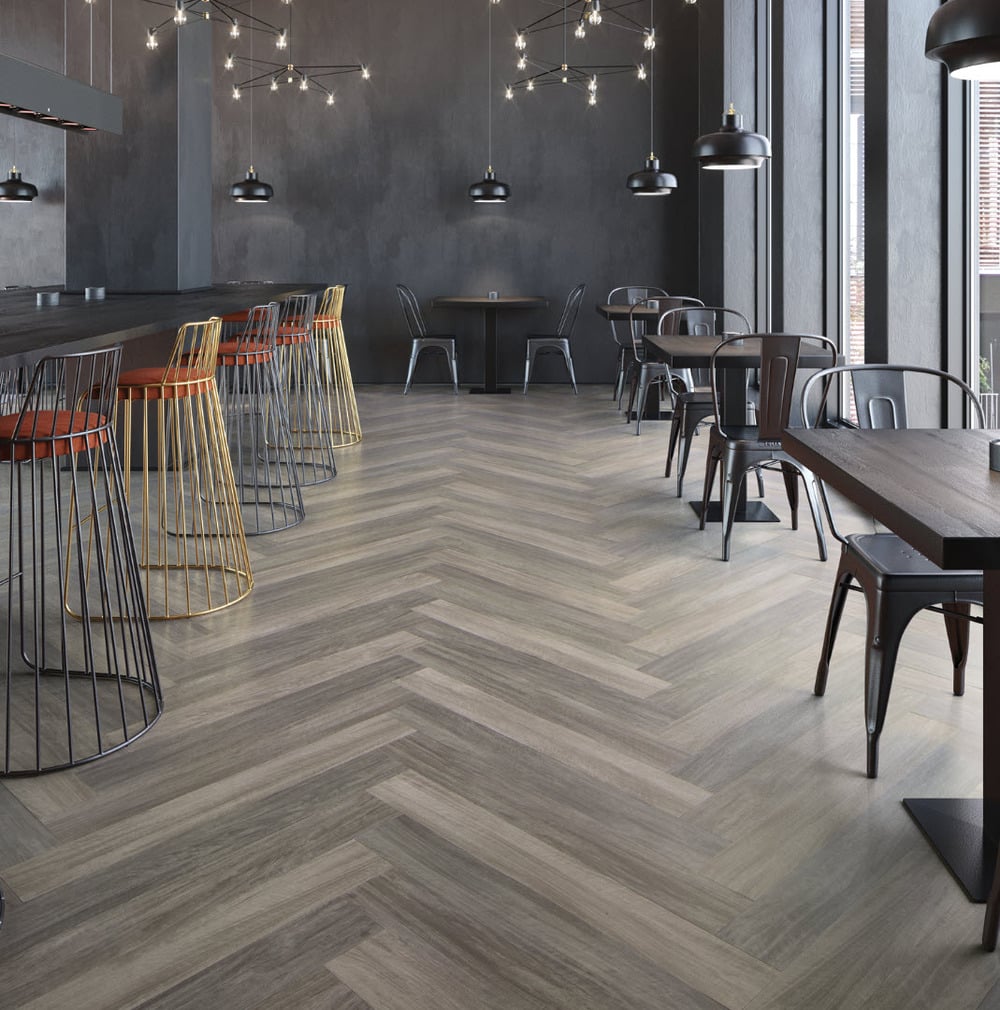
What Makes Vinyl Flooring a Popular Choice in Vancouver?
Vinyl flooring dominates the Vancouver market because it aligns perfectly with the lifestyle and climate of the region. The product’s affordability, resilience, and aesthetic flexibility cater to a wide range of preferences and practical needs. Particularly in a city like Vancouver, where rain and moisture are common, the waterproof characteristics of vinyl flooring provide an invaluable advantage. This technological advancement ensures that floors remain undamaged and beautiful despite frequent exposure to damp conditions, making vinyl an excellent choice for bustling commercial and cozy residential settings. This resilience and cost-effectiveness make vinyl flooring a rational and popular choice in Vancouver’s diverse and dynamic market.
Hybrid Luxury Vinyl Flooring Options:
SPC Vinyl Plank
SPC luxury vinyl plank represents the next big evolution in vinyl flooring. It uses advanced printing and texture technology, making it one of the most durable options. SPC stands for Stone Plastic Composite. Its main component is limestone (calcium carbonate), stabilizer, and PVC powder. This composition makes it extremely stable, fire-resistant, and 100% waterproof. Unlike other materials, SPC does not expand or contract.
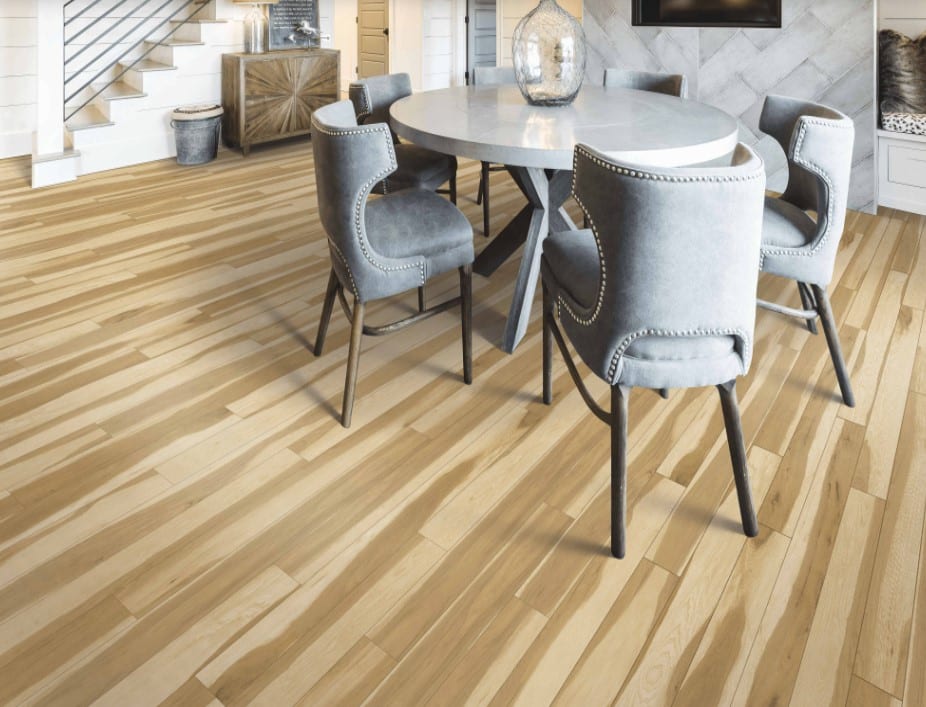
WPC Vinyl Plank
WPC stands for wood–plastic composite. It consists of an upper LVT layer and a WPC core. A WPC luxury vinyl plank offers a better foot feel, more stability, and more quality than standard vinyl flooring. Its installation can be tricky. We ensure seamless installation, making your flooring look beautiful in no time.
How Do I Choose the Right Vinyl Plank Flooring?
Choosing the right vinyl plank flooring in Vancouver involves a keen understanding of your needs and the unique offerings in the market. This decision is critical as it influences both the aesthetic appeal and functional longevity of your flooring.
Here’s how to navigate the selection process effectively:
Assess Durability Needs: Evaluate the level of traffic your floors will endure. Opt for vinyl planks with a thicker wear layer in high-traffic areas to resist scratches and scuffs.
Consider the Moisture Levels: Given Vancouver’s damp climate, choose waterproof vinyl planks. These are especially suited for kitchens, bathrooms, and basements where moisture is prevalent.
Look at Style Options: Vinyl planks come in various designs that mimic natural wood, stone, and tile. Select a style that complements your home’s existing décor and meets your personal taste.
Check Installation Methods: Some vinyl planks offer peel-and-stick, click-lock, or glue-down installation options. When choosing a vinyl plank, consider your DIY skills or the need for professional installation.
Evaluate Eco-Friendliness: If environmental impact is a concern, look for vinyl flooring made from recycled materials or those certified by eco-friendly standards.
Set a Budget: Determine how much you are willing to invest in Vancouver vinyl flooring to enhance your living spaces. While vinyl plank flooring is generally cost-effective, prices can vary based on thickness, style, and durability features.
By carefully considering these factors, you can select vinyl plank flooring in Vancouver that not only looks great but also performs well under local environmental conditions, ensuring a wise investment for your space.
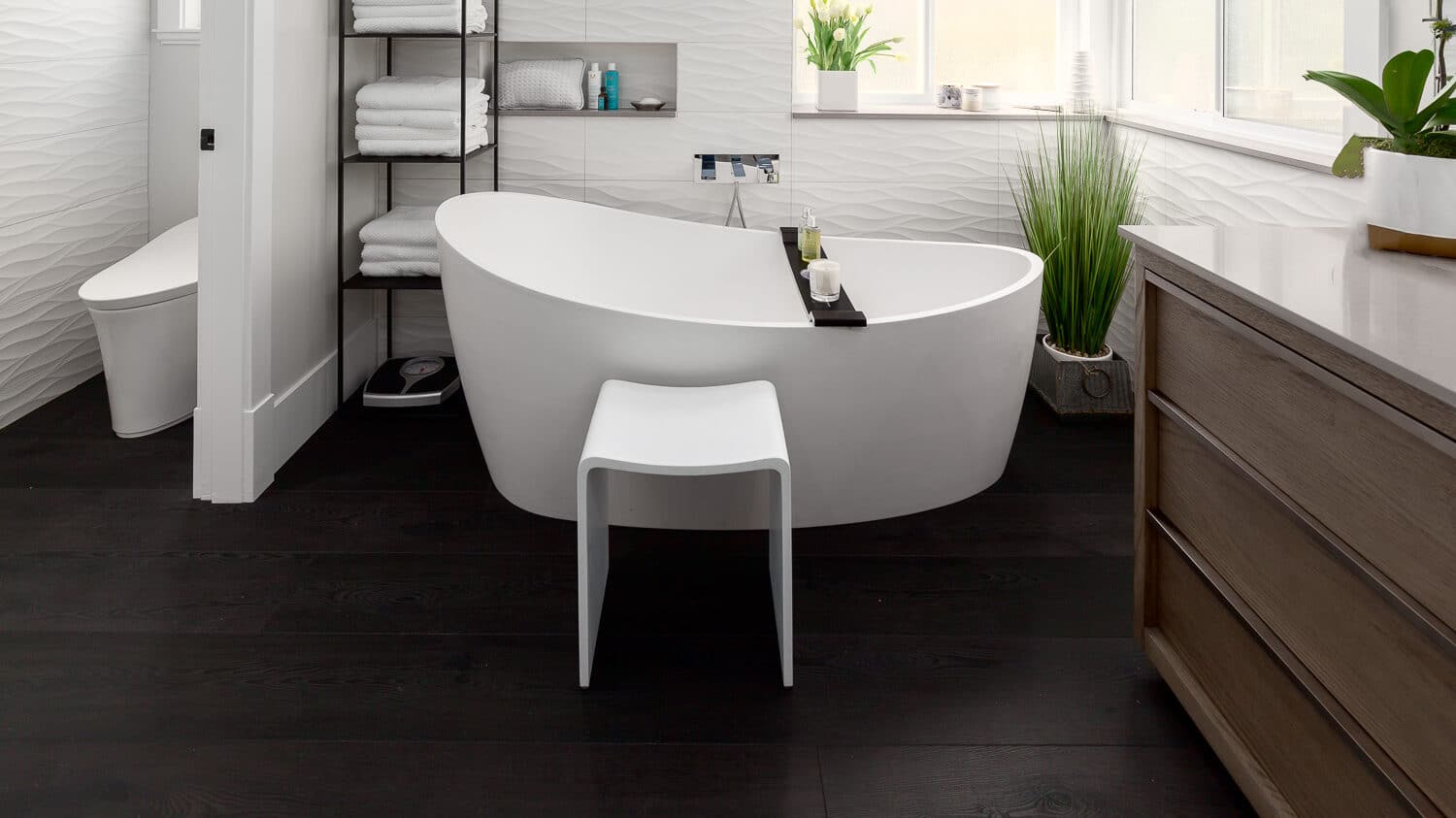
Understanding the Benefits of Waterproof Vinyl Flooring
Luxury vinyl flooring, a step up in the world of waterproof vinyl flooring products, offers Vancouver homeowners an exceptional blend of style and durability. This flooring thrives in kitchens, bathrooms, and other high-moisture areas, ensuring that practical needs never compromise aesthetic appeal. With the capability to mimic luxurious materials like hardwood and stone, luxury vinyl flooring elevates any space with its sophisticated designs.
Its resilience against water and ease of maintenance make it an ideal choice for those seeking a new floor that merges the visual appeal of laminate with the practical benefits of traditional vinyl products. This makes luxury vinyl flooring a versatile and wise investment for those who value both functionality and style in their living spaces.
What Are the Latest Trends in Vinyl Flooring in Vancouver?
Vinyl flooring in Vancouver is transforming under dynamic trends emphasizing sustainability, aesthetic appeal, and innovative functionality.
Here are the key trends currently shaping the vinyl flooring landscape:
Sustainability and Innovation
Vinyl flooring is becoming more sustainable as manufacturers in Vancouver utilize recycled materials to produce environmentally friendly products. This green initiative is complemented by advancements in technology that incorporate waterproof and scratch-resistant features, extending the durability and functional appeal of vinyl flooring, making it a sustainable and affordable flooring option.
Aesthetic Trends
In 2024, the aesthetic direction for vinyl flooring is steering towards natural warm colours and minimalist styles, showing a trend towards affordable flooring that does not sacrifice style. This reflects a broader trend towards simplicity and ecological responsibility in home decor. Thanks to cutting-edge printing technologies, vinyl floors now mimic real wood and stone textures, providing the luxurious look homeowners desire without sacrificing practical benefits.
Waterproof Features
Vinyl flooring has evolved to offer enhanced water resistance, with some lines achieving complete waterproof status. This attribute is particularly beneficial for kitchens, bathrooms, and basements—areas in Vancouver homes that frequently contend with moisture. The demand for waterproof vinyl is growing, especially in settings with high foot traffic or frequent spillages.
Market Growth
The market for vinyl flooring is on an upward trajectory, fueled by its affordability and low maintenance requirements. Versatile enough for both domestic and commercial environments, vinyl flooring’s market share is expanding. Globally, the sector is expected to see a growth rate of approximately 7% annually, with significant demand in regions undergoing rapid infrastructural development.
Statistical Insights
Holding a robust segment of the flooring market, vinyl flooring, including vinyl flooring installation services in Vancouver, has seen its sales surge by over 10% in recent years. This growth underscores the product’s broad consumer appeal and its adaptability to varying climatic and usage conditions.
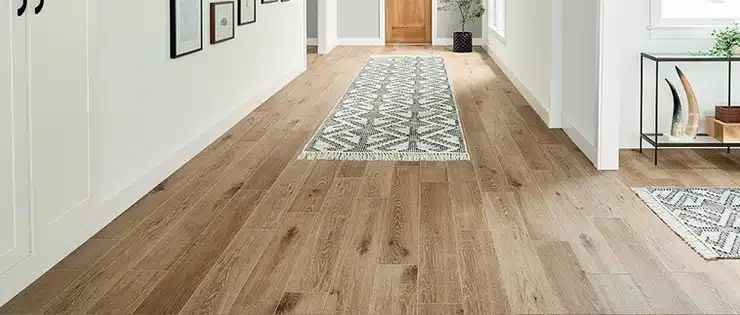
Why Consider Luxury Vinyl Plank Flooring?
Luxury vinyl plank and tile flooring in Vancouver represents a sophisticated choice for homeowners seeking both style and durability. This type of vinyl flooring combines the aesthetic appeal of natural hardwood with the resilience and maintenance ease of synthetic materials. Particularly suited to Vancouver’s diverse climates and lifestyle demands, luxury vinyl plank and tile are waterproof, making them ideal for high-moisture areas like kitchens and bathrooms.
They also boast a wear layer that resists scratches and stains, ensuring longevity even in high-traffic areas. Furthermore, with advanced printing technology, these flooring options offer realistic textures and patterns that enhance any interior design scheme. Cost-effective and versatile, luxury vinyl plank and tile flooring meet the practical needs of modern living while providing an elegant foundation for any home décor.
How to Maintain Your Vinyl Flooring for Longevity?
Maintaining vinyl flooring in Vancouver to ensure its longevity involves simple yet effective practices. Here are some expert tips to keep your vinyl floors looking new:
Regular Cleaning: Sweep or vacuum vinyl flooring regularly to remove dirt and grit that can scratch the surface. For deeper cleaning, use a damp mop with a mild, vinyl-specific cleaner to avoid damaging the material.
Immediate Spill Cleanup: Respond quickly to spills by wiping them up immediately with a soft cloth or mop. This prevents staining and potential water damage, which is especially important in high-moisture areas.
Use of Protective Pads: Place felt pads under furniture legs to prevent scratches and dents on your vinyl flooring. When moving heavy furniture, always lift rather than drag to protect the floor’s surface.
Rug Placement: Place area rugs or mats at entryways and high-traffic zones to capture dirt and moisture from shoes. Ensure these rugs are non-rubber backed to avoid discoloring the vinyl.
Avoid Harsh Chemicals: Avoid abrasive cleaners and harsh chemicals that can strip the finish off vinyl flooring. Opt for pH-neutral cleaning solutions specifically designed for vinyl.
Regular Inspections: Check for any signs of damage or lifting at seams and edges. Addressing these issues promptly can prevent further deterioration and extend the floor’s life.
By adhering to these maintenance tips, homeowners in Vancouver can enjoy durable and attractive vinyl flooring for years to come, ensuring their investment retains both its beauty and functionality.
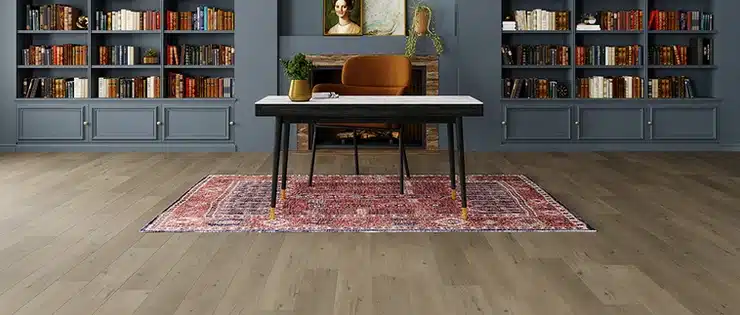
Where to Find the Best Vinyl Flooring Stores in Vancouver?
Canadian Home Style is a premier destination for those in Vancouver seeking top-notch vinyl flooring. Located in the heart of Vancouver, this store offers an exceptional selection of vinyl flooring, including plank and tile options, tailored to meet the demands of any modern interior. With a reputation for quality and customer satisfaction, Canadian Home Style ensures every customer finds exactly what they need, all within their budget.
Why settle for less when you can partner with the best in the business? Canadian Home Style provides a vast range of vinyl flooring choices and expert installation services across Vancouver. Whether you’re renovating your home or updating your office space, their team delivers impeccable service and flawless results.
Luxury vinyl planks offer numerous benefits. They mimic wood or natural stone floors but are more durable and resistant to stains and water. Our products contain no metals, odors, or toxins and qualify for LEED points in commercial applications, meeting Green building standards. We also offer vinyl planks with safety features that meet commercial flammability codes and slip resistance requirements.
Visit Canadian Home Style today to explore their superb selection and enjoy Vancouver’s best prices and services. Let them help you transform your space with style and confidence.
